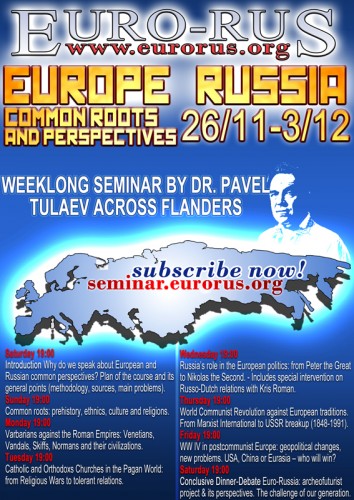Dear Robert Steuckers, you are among the few West European journalists or publicists who profoundly understand the history and geopolitics of Russia. We know each other now since more than fifteen years and that’s why I find this interview is important. First of all, would like to introduce yourself, to tell us about your profession, your specialisation, your titles, etc. ?
RS: Well, there is nothing special about me. I was born in Uccle/Ukkel in January 1956 in a quite poor family. My father was the son of a peasant having a family of seven children and came to Brussels to find a job as a servant in 1933. He didn’t want to go to school to become a schoolmaster, didn’t want to work on the farm feeding the pigs and couldn’t find a long-lasting job in his province. My mother, who died recently in December 2011 at the age of 97, was the daughter of a beer brewer and seller, who, at the age of 14, left his village, where his own father had also seven children and only one cow he had to drive along ways and paths in his village in order to let her graze as he had no meadow of his own.
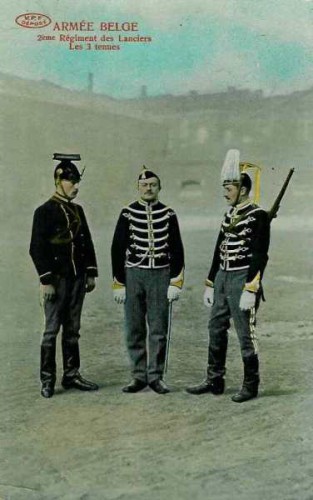 In Brussels my grand-father became the helper of a baker and then could be hired by the army to replace a rich son of a bourgeois family, who had no lust to do his military service (at that time conscription was not yet compulsory in Belgium). He served for three years in the 2nd and 4th Lancers, an elite light cavalry regiment, in which he got the noble attitude in his daily gestures he kept till his last breath, almost 87 years old. With the money he got from the rich family to do military service instead of the son of the house, he could buy and take over the small business of a retired or passed away brewer and marry my grandmother in 1908, the very year one of his sisters migrated to the United States, to Indiana, to run a farm with her husband: they too had seven children. My mother’s parents started a trade in beers and lemonades, which lasted 80 years, being taken over by my uncles in 1953. My grand-parents’ youngest son retired in 1988. My grandfather was called up in August 1914 and participated in the First World War as a sergeant in the transport units behind the Yser Front in Flanders. He swallowed mustard gas (Yperite), suffered ten years long from the effects of this nasty chemical but could recover after a terrible pneumonia, due to lung complications, in 1928. Even if he could earn a good life by selling beers to pubs and private customers, he was the model of an ascetic, eating almost no meat, only oats with milk and eggs, together with rhubarb and prunes that he cultivated in his own garden. He wanted to remain thin to mount horses in case if… but he had no horse anymore. He bought motorcars and lorries that he was never able to drive himself: this was the task of his sons. He used to say: “Modern times are preposterous: they all need a motor under their bottom even for a distance less than 500 yards”. My grandmother was even more ascetic and left me one of her often quoted saying: “Clock hours (i. e. measured time) are for fools, the wise know their time” (‘t Uur is voor de zotten, de wijzen weten hun tijd”). In this sense, she was exactly in tune with the celebrated German writer Ernst Jünger, when he theorized his ideas about time.
In Brussels my grand-father became the helper of a baker and then could be hired by the army to replace a rich son of a bourgeois family, who had no lust to do his military service (at that time conscription was not yet compulsory in Belgium). He served for three years in the 2nd and 4th Lancers, an elite light cavalry regiment, in which he got the noble attitude in his daily gestures he kept till his last breath, almost 87 years old. With the money he got from the rich family to do military service instead of the son of the house, he could buy and take over the small business of a retired or passed away brewer and marry my grandmother in 1908, the very year one of his sisters migrated to the United States, to Indiana, to run a farm with her husband: they too had seven children. My mother’s parents started a trade in beers and lemonades, which lasted 80 years, being taken over by my uncles in 1953. My grand-parents’ youngest son retired in 1988. My grandfather was called up in August 1914 and participated in the First World War as a sergeant in the transport units behind the Yser Front in Flanders. He swallowed mustard gas (Yperite), suffered ten years long from the effects of this nasty chemical but could recover after a terrible pneumonia, due to lung complications, in 1928. Even if he could earn a good life by selling beers to pubs and private customers, he was the model of an ascetic, eating almost no meat, only oats with milk and eggs, together with rhubarb and prunes that he cultivated in his own garden. He wanted to remain thin to mount horses in case if… but he had no horse anymore. He bought motorcars and lorries that he was never able to drive himself: this was the task of his sons. He used to say: “Modern times are preposterous: they all need a motor under their bottom even for a distance less than 500 yards”. My grandmother was even more ascetic and left me one of her often quoted saying: “Clock hours (i. e. measured time) are for fools, the wise know their time” (‘t Uur is voor de zotten, de wijzen weten hun tijd”). In this sense, she was exactly in tune with the celebrated German writer Ernst Jünger, when he theorized his ideas about time.
My father came to work as a servant to the House of Count Willy (Guillaume) de Hemricourt de Grunne in 1938. In the summer of this year he made his first trip outside Belgium to a village in Franche-Comté, near the Swiss border, where Count de Grunne had inherited a wonderful mansion house from an aunt who had inherited it from his own grandfather, the French Catholic thinker and politician Count Charles de Montalembert. I still spend some days in this part of Europe twice or three times a year. In August 1939, just a few days after the Molotov-Ribbentrop agreement, my father was called up in the Belgian army, was sent to barracks near the German border during the phoney war, then to the Beverloo military camp, where he underwent the German air attack by Stuka bombers in the early morning of May 10th, 1940. After his duty, as no Flemish conscript soldiers were taken prisoner of war and sent to Germany, my father went back to the House of Count de Grunne, where he worked till his retirement in 1978. Some months later Willy de Grunne died, just three days before his 90th birthday.
My youth was spent in the marvellous surrounding Willy de Grunne created in the large garden behind his house in Brussels, which was a marvel of architecture designed by the genial Belgian architect Brunfaut in the early Twenties. Willy de Grunne wanted to have different flowers in his garden in spring, summer and late summer, so that I always could play among the most beautiful selection of plants that a team of very able professional gardeners kept with love and care. The mansion in Franche-Comté is still a marvel today and is now run by his grandson, whose father was Russian and son of a White Guard officer and later one of the best teachers of your language in Belgium. The surroundings created by Willy de Grunne made of me a youth completely immune to the seductions of modern world, but simultaneously I was perhaps also affected by a serious handicap: I could never understand the way of working in factories or offices, with the artificial rhythms and hierarchies they imply.
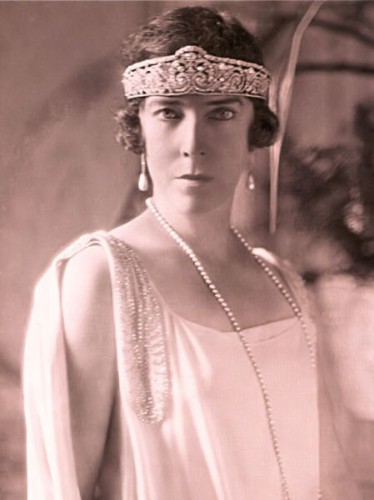 The world of my youth was a world with only personal, friendly relationships never determined by contracts, only by pure genuine human and manly confidence, based on the given word you never withdraw. Books were important in this world, as Willy de Grunne had, among other tasks as a diplomat, to read books for Queen Elizabeth Wittelsbach, a Bavarian Duchess, who became Queen of the Belgians in 1909. Willy de Grunne was Grand Master of her House in the Thirties. Queen Elizabeth was, just as her whole Bavarian family in Munich, an excellent sponsor of arts, music and museums. We owe her the Egyptology Museum in Brussels and among many other things the world famous “Concours Reine Elizabeth”, promoting young talented musicians from all over the world. Many young Russian musicians participated in this prestigious competition. Besides, Queen Elizabeth has been (and still is) criticized for being of German origin and for having refused to boycott the USSR and China during the Cold war. She ended her life in the Fifties and the early Sixties by acquiring the then sulphurous reputation of a “Bolshevik Queen”. She died in 1965.
The world of my youth was a world with only personal, friendly relationships never determined by contracts, only by pure genuine human and manly confidence, based on the given word you never withdraw. Books were important in this world, as Willy de Grunne had, among other tasks as a diplomat, to read books for Queen Elizabeth Wittelsbach, a Bavarian Duchess, who became Queen of the Belgians in 1909. Willy de Grunne was Grand Master of her House in the Thirties. Queen Elizabeth was, just as her whole Bavarian family in Munich, an excellent sponsor of arts, music and museums. We owe her the Egyptology Museum in Brussels and among many other things the world famous “Concours Reine Elizabeth”, promoting young talented musicians from all over the world. Many young Russian musicians participated in this prestigious competition. Besides, Queen Elizabeth has been (and still is) criticized for being of German origin and for having refused to boycott the USSR and China during the Cold war. She ended her life in the Fifties and the early Sixties by acquiring the then sulphurous reputation of a “Bolshevik Queen”. She died in 1965.
Now, I became a so-called “intellectual” thanks to my father’s sister Julienne, who had a diploma of schoolmistress, had married Hendrik Lambrechts, a Flemish schoolmaster in ‘s Gravensvoeren (Fouron-le-Comte), and had a son, Raoul, who after his father’s death in 1949, became a political scientist having studied at the prestigious University of Louvain, after brilliant secondary school studies (Latin and Greek) achieved at the Flemish “Heilig Hart College” (“Sacred Heart College”) in Ganshoren near Brussels. My aunt was very proud of her son. But unfortunately Raoul died in 1961 from a heart disease that would now be easily cured. I was only five years old when I was brought to the University Hospital in Louvain to see him dying after a previous operation that provoked a blood clot that stroke his brain. The vivid and awful memory of this dying unconscious young man, his desperate eyes and the frightful calls of his mother remain in my mind till now. After Raoul’s death my father was told and even ordered by his sister to make all the efforts needed to let me study at a University, because, she said, “our old Province Limburg should have an elite born out of peasant families”. I was given the task, even the burden, to replace Raoul in the family: a man had been killed, another had to take his place. Aunt Julienne died in 1991. I saw her some days before her passing away. She was as happy as happy can be. A bright smile illuminated her face, although she was suffering a lot due to the dog days: finally, not only me, the crazy boy full of silly fantasies, had something like a diploma, but also the daughter of her daughter, who just got her diploma of political scientist at the State’s University of Ghent. One of my cousins found the right words when she held a very well balanced speech in the church on her burial day: “A grand and simple lady”.
These family circumstances explain why I was first sent to a good primary school in the part of the City where I’ve always lived. The teachers were severe and taught us parsing very well, which has been of the uttermost importance for my further studies in Latin in the secondary school and in German, English and Dutch for my studies at University or at the Translators’ and Interpreters’ School. After the usual six years of primary school, I was sent to a secondary school not far from home, where my father, after a good briefing of Aunt Julienne and of Willy de Grunne, let me be registered in the Latin classes. I couldn’t understand why I had to study Latin when we both went to this impressive old school to meet a friar responsible to register the new pupils. He told me when I asked him why Latin was for that a secondary school is like a train with several cars, that my seat had been booked in the Latin car and if after a year or a couple of years I couldn’t feel well in this kind of luxury or first class car, they would book a seat for me in another one, perhaps less prestigious but even more efficient and pragmatic. But I immediately liked to study Latin, especially words and etymologies, and never failed any examination in this subject. My crux during the years of my secondary school had been maths not because I had a prejudice against maths —on the contrary— but because in September 1967, some crazy and criminal minds had decided to introduce “modern math” (singular!) without any pedagogical preparation: modern math is indeed too abstract to understand for children younger than 12 or 13 years and I was only 11 when I started secondary school. I was saved at the end of the first year because fortunately some clever minds had rung the alarm bell and imposed algebra in the traditional way.
During the fifth year, the so-called Latin “poetry class”, I became firmly decided to learn modern languages, more precisely German and English at University. After two years I changed for the Translators and Interpreters School, which was not far from my home. After four years I got the diploma of English and German translator. To obtain it I had to translate and comment a book of Ernst Topitsch and Kurt Salamun criticizing “ideologies” as constructed systems that prevent real pragmatic thoughts to develop or that serve as crushing instruments to perpetuate the domination of false elites (like the pigs in Orwell’s Animal Farm) becoming gradually out of touch.
So I became successively a clerk by Rank Xerox (to answer calls in several languages), the dumbfound redaction secretary of Benoist’s magazine “Nouvelle école” (having had the privilege to analyse on the very field the preposterousness of the all business lead by this silly old wet blanket of Benoist), a soldier doing his military service in the 7th Company Logistics for ten short months in Saive (near Liège), in Marche-en-Famenne, in the marvellous Burg Vogelsang and the village of Bürvenich in Germany along the border, a freelance translator and interpreter for twenty years (with a lot of different customers active in all possible social fields), a sworn translator for the Ministry of Justice, a private teacher, one among the numerous freelance assistants of Prof. Jean-François Mattei, who published in 1992 the “Encyclopédie des Oeuvres philosophiques” for the “Presses Universitaires de France”, and, as a wonderful and enthralling hobby, the metapolitical fighter you’ve known since now more than fifteen years. As a metapolitcal fighter, I was first a young and second-rank animator of the Brussels’ GRECE-group around Georges Hupin, an occasional pen pusher for his small bulletin “Renaissance Européenne” (still published nowadays as the organ of Vial’s “Terre & Peuple” movement in the French-speaking part of Belgium), then the founder of “Orientations”, the redaction secretary of “Nouvelle école”, one of the founders of the Brussels’ EROE–group, the founder of “Vouloir” together with Jean E. van der Taelen, a speaker having wandered throughout Europe to address meeting or participate to seminars of all kinds, a member of Faye’s “Etudes & recherches”-club within the “nouvelle droite”, then the organiser together with others of the Munkzwalm-seminars in Flanders, one among the founders of “Synergies Européennes” (together with Gilbert Sincyr and Jean de Bussac) and organisers of all the activities lead by this European group, including the publication of “Nouvelles de Synergies Européennes” and “Au fil de l’épée”.
You have a universal outlook that can be called encyclopaedic. How did you get your education? Whom can you consider your teachers? Who are the authors and which are the books that have influenced you most?
If once in your life you decide to become a metapolitical fighter you have of course as a duty to read ceaselessly and to acquire willy-nilly this “encyclopaedic outlook” you talk about. Moreover if the metapolitical purpose you follow is to re-establish European culture in all its richness the piles of books awaiting you reach permanently the ceiling. I got my education at school and nowhere else. It would be dishonest and conceited to invent a story trying to demonstrate somehow the contrary. Schoolbooks for the subject “History” were and are still good in Belgium. You have simply to assimilate the contents and to complete them with further readings. Of course, I owe a lot to our Latin teacher Simon Hauwaert and our philosophy teacher Lucien Verbruggen, not only for their lessons but also for the long tours they organized for us in Greece and Turkey, in order to discover Ancient Greek civilisation. When I was sixteen and a half, I was brought by the circumstances of these long school trips in the streets of Athens or Istanbul and visited Ankara’s Hittite Museum just one day after having had a short tour around Cappadocia’s cave dwellings and Byzantine churches. This was an even so good training in fact than school curriculum in itself. Another good thing was that we had to prepare every year for Hauwaert and his successor Salmon a paper on a classical Latin topic together with a grammatical analysis of an original text (I had with my late friend Leyssens, a future gynaecologist, who died in a mountain accident at 42 leaving three orphan sons, to study successively Lucretius’ De rerum naturae, a part of Plinius’ Natural History and Plautus’ theatre). The last year Rodolphe Brouwers, our French and History teacher, compelled us to write a paper on history: I had to write a survey about the COMECON countries (Poland, Czechoslovakia, Bulgaria, Rumania, Hungary). Brouwers had also the good idea to let us parse in all details Bossuet’s speeches in order to let us discover the good balance of a possible barrister’s plea or to be able later to coin speeches along the same stylistic guidelines in order to let them be better understandable only by giving them a well-balanced rhythm à la Bossuet. It has been very useful each time the GRECE-people asked me to address their annual meeting held in Paris or Versailles. During a first year at University, I followed the lectures of René Jongen in German grammar and had a course of German literature by the Flemish writer Paul Lebeau. Later I had English grammar by Jacques Van Roey, as well as good introductory lectures in history, among which the ones of Léopold Génicot on the West European Middle Ages were the most memorable. At the interpreters’ school, two years later, we had excellent practical trainings in modern languages.
What concerns the specific New Right literature I was deeply influenced by Pierre Chassard’s introduction to Nietzsche’s philosophy (“Nietzsche, finalisme et histoire”), which compelled me to read Nietzsche more critically and to be definitively defiant in front of all kinds of ready-made idealistic notions (the ready-made “Platonisms” that lards unrealistic political programs) and to know that moralistic arguments are too often escapism and rejection of plain common sense. I had already read Nietzsche’s “Antichrist” and his “Genealogy of Moral” but I had then as a boy of 14 or 16 no serious guidelines to understand actually the purposes Nietzsche had by writing this two cardinal books. In 1970, when I was in the 3d class, I asked my French teacher Marcel Aelbrechts which novels I had to read: all he suggested me was excellent but the main book in the series was undoubtedly the “Spanish Testament” of Arthur Koestler: so I got fascinated by English novels not through the English teacher (who at that time was also an excellent man, Mr. Mercenier) but through the French teacher, an old mischievous friar, who was certainly not sanctimonious (and with whom I had a real boxing fight at the end of my studies because he tried to prevent me to beat the math teacher; we nevertheless remained good friends; normal people fight and shout at each other: the political correctness says today that such attitudes are wrong but in no other period of history so many people had to look for the help of the psychiatrist or to swallow sedating pills; so “political correctness”, as we can objectively state, is surely bad for your health…).
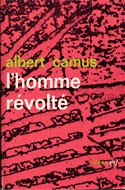 My next French teacher was Jacques Goyens, who is now retired of course and considered nowadays as a main French-speaking Belgian author. He introduced us to poetry (Rimbaud, Leconte de Lisle, Baudelaire, Verlaine,…) and to present-day literature. During springtime 1972, Jean-Paul Leyssens and I worked on Albert Camus and we stressed mainly his philosophical ideas, inspired by Nietzsche and written down in “L’homme révolté”. Goyens was disappointed because we had coined a portrait of Camus as a Nietzschean philosopher and therefore neglected his main contribution to the genuine French literature of the Fifties. But in the end I was happy to have learned about the philosophical dimension of Camus’ work and Goyens was perhaps thoroughly right as Camus is more important as a writer than as a philosopher, but what both parties forgot was the rather complex context in which Camus’ political views developed at the time when existentialism was fashion in Paris. In March 1973, Goyens took us away from school to visit an important exhibition at the Belgian Royal Museum of History and Archaeology: it was about the glorious medieval period of the so-called Rhine-Meuse civilization between the 9th and the 15th centuries. This region is indeed the cradle of the Western Imperial tradition, as the reaction against the Merovingian decay (our first “Smuta”) took place in the area between Meuse, Rhine and Mosel among the Pippinide clan of Charles the Hammer (Charles Martel) and as Charlemagne settled his main capital in the City of Aachen, from where a kind of Renaissance of Ancient thought took place long before the more widely known Italian Renaissance of the 15th Century. I was just seventeen then but the idea that our own imperial cradle was so near to my place fascinated me especially as my father’s family is from Flemish Limburg, an area close to this fertile and green cradle county. Jean Thiriart too liked to stress that his family originated from the Walloon part of this Rhine-Meuse area and that therefore the European idea was his own as the Carolingian Imperial idea had been the one of his ancestors.
My next French teacher was Jacques Goyens, who is now retired of course and considered nowadays as a main French-speaking Belgian author. He introduced us to poetry (Rimbaud, Leconte de Lisle, Baudelaire, Verlaine,…) and to present-day literature. During springtime 1972, Jean-Paul Leyssens and I worked on Albert Camus and we stressed mainly his philosophical ideas, inspired by Nietzsche and written down in “L’homme révolté”. Goyens was disappointed because we had coined a portrait of Camus as a Nietzschean philosopher and therefore neglected his main contribution to the genuine French literature of the Fifties. But in the end I was happy to have learned about the philosophical dimension of Camus’ work and Goyens was perhaps thoroughly right as Camus is more important as a writer than as a philosopher, but what both parties forgot was the rather complex context in which Camus’ political views developed at the time when existentialism was fashion in Paris. In March 1973, Goyens took us away from school to visit an important exhibition at the Belgian Royal Museum of History and Archaeology: it was about the glorious medieval period of the so-called Rhine-Meuse civilization between the 9th and the 15th centuries. This region is indeed the cradle of the Western Imperial tradition, as the reaction against the Merovingian decay (our first “Smuta”) took place in the area between Meuse, Rhine and Mosel among the Pippinide clan of Charles the Hammer (Charles Martel) and as Charlemagne settled his main capital in the City of Aachen, from where a kind of Renaissance of Ancient thought took place long before the more widely known Italian Renaissance of the 15th Century. I was just seventeen then but the idea that our own imperial cradle was so near to my place fascinated me especially as my father’s family is from Flemish Limburg, an area close to this fertile and green cradle county. Jean Thiriart too liked to stress that his family originated from the Walloon part of this Rhine-Meuse area and that therefore the European idea was his own as the Carolingian Imperial idea had been the one of his ancestors.
In the translators’ and interpreters’ school we had good grammar and lexicology teachers like Potelle, Van Hemeldonck and Defrance (who had had a tremendously active life and had founded one of Belgium’s more prestigious bookshop in Ostend before becoming a teacher and who brought us to Berlin in 1977 and to Munich in 1978 during two memorable students’ trips). What concerns more specifically geopolitics and history, the lectures of Mrs. Costa, based on a German official handbook, whose title was “Zweimal Deutschland”, provided us a thorough knowledge in recent German history, which is the key to understand the process of geopolitical and political alienation in Europe after 1945. The history lectures of Prof. Peymans stressed the political and philosophical specificity of the liberal and subversive Western hemisphere (Britain, USA, France), which, in order to be able to develop, had to get rid of all the traditional institutions generating the peoples’ identity or of all the “atavistic forces” as Solzhenitsyn called them while he was defending old Russia against all the endeavours of the wild Westernization you have endured in your country. During the two last years in the translators’ school, we had lectures in international politics and current affairs given by Mrs. Massart, who agreed to let me comment and introduce Jordis von Lohausen’s book on geopolitics. My destiny as a “geopolitician” within the New Right groups was settled once for all. Having read the German “geo-economicist” Anton Zischka about Eastern Europe in order to be able to write out Brouwers’ history paper in 1974, my non Western vision of European history was from then on quite complete, as Mrs Costa’s lectures on recent German history, Zischka’s nostalgia of a united European area without any Iron Curtain and Lohausen’s Central European vision of history and geography made me immune for all strictly Western or NATO world visions.
As I’ve already told it to our Scandinavian friends in an interview they submitted me, historical atlases were important for me, among them I want to quote the “DTV-Atlas zur Weltgeschichte” and Colin MacEvedy’s British atlases issued by the celebrated Penguin publishing house in Harmondsworth, England.
You know some European languages and make a lot of translations. Why didn’t you study Russian or any other Slavonic language?
I’ve got a diploma for the English and German languages. As we spoke Dutch and French at home and more generally in Brussels’ everyday life, I was quasi born as a bilingual boy. My school education was in French as most of the Flemish schools disappeared in the late Forties and early Fifties because the Germans had supported a policy of “Rückgermanisierung” or “re-Germanization” during their second occupation. After 1945, the “Germanization” policy, that had been launched through the financial support for a revival of the Flemish language, was of course cancelled and the Belgian establishment inaugurated a policy of “Rückromanisierung”, that decelerated later because people started to send their children back to Flemish schools again, mostly because they weren’t attended by so many immigrants. This phenomenon of “Rückromanisierung” was especially the case in the Southern municipalities of Brussels. My cousin Raoul could attend a Flemish high quality secondary school in the Northern part of the urban area. An education in French was not as such a bad thing, of course, but we thought anyway that, even if French is a very important world language, the policy of “French alone”, followed by some Frenchified zealots within the Belgian establishment in Brussels lead to a kind of closeness or isolation, as Dutch/Flemish is a excellent springboard to learn English, German and Scandinavian languages. The left liberal and socialist Flemish author August Vermeylen, at a time between 1890 and 1914 when socialism in Belgium wasn’t uprooted (and an uprooting force as well) and produced excellent and original cultural goods, used to say that we had to be Flemings again in order to become good Europeans (in Nietzsche’s meaning of the phrase). Vermeylen didn’t exclude French as a language of course but wanted people to open their minds to the cultural worlds of Britain, Holland, Germany and Scandinavia. In this sense I am a socialist à la Vermeylen. And my own boy went to a Flemish school, despite the fact that his mother was born in Wallonia and had to learn Dutch as an adult.
To learn Slavonic languages at the time of the Cold War was almost impossible as you couldn’t meet native speakers in common professional and everyday life surroundings. When I was eleven years old in summer 1967, just after having achieved primary school, I went to de Grunne’s place in Franche-Comté, where he had invited “Babushka”, the grand-mother of his grand-children. “Babushka” was a fantastic elderly woman, who taught the Russian language to her grand-sons and I helped her to keep them and bring them to a playing area with a toboggan in the village. During these afternoons, only Russian was spoken! About more than one year later, I went for the first time in my life to a real theatre (i. e. not a wandering theatre for school children) to watch an adaptation of Dostoievski’s “Crime and Castigation”, written by Alexis Guedroitz, de Grunne’s son-in-law, and masterly performed by the troupe of the famous Belgian actor Claude Etienne, who played the role of the investigating police principal. This was not the only Russian presence in my childhood: the wife of our neighbour was Russian and I played as a boy with their half-Russian children. More: her father, a former Colonel of the Czar, had an old batman, a giant and handsome mujik, who worked in their little shop producing children disguises for carnivals and fancy fairs, as they had to make a living when they came back like many White Russians completely ruined from Congo where the Belgian authorities had sent them before this Central African country became independent. This former corporal batman of the White Army was fascinated by the little boy I was because —I disclose it here for the first time as I’ve always been too shy to tell it— I had been elected in 1958 the most beautiful baby boy of Belgium: this has been my very first diploma but since then I grew old and ugly! As a simple man, the old Russian White Gardist was very proud to be the neighbour of the most beautiful baby boy of Belgium and once a week this poor penniless man bought for me a bar of chocolate in our street’s sweets shop and put it in the letter box. My mother told me that this was a real sacrifice for such a poor man and taught me to respect sincerely this modest and kind weekly gesture of gentleness. But I kept in mind that all simple Russian men were generous and not avaricious, so I always have picked up denigrating propaganda, be it the German one of WWII or the NATO one of the Cold War, with an extreme scepticism.
When I moved to Forest again in 1983, my neighbour was the celebrated nurse Nathalia Matheev, daughter of another Czarist officer, who died fighting the Red Army in Crimea. She was loved by all our neighbours and died just a few days before my son was born. In her flat, where I live now, many Russians of the Twenties’ emigration came to pay her a visit, especially on Easter Day, when “Paska” and vodka with fruit juice were served: among them a cousin of Admiral Makharov and the German-Baltic Count von Thiesenhausen, who at Nathalia’s burial mass, stood upright at the respectable age of 83 during three long hours, holding a candle and singing the old sweet Slavonic burial songs, without a single minute of rest. Nathalia studied nursery in Brussels after having left Russia and was even sent as a volunteer of the Belgian Red Cross to Peru to manage a health centre high in the Andean mountains in 1928.
I tried by my own to learn Russian through an Assimil method when I was sixteen in 1972. I discovered Indo-European comparative etymology in our reference schoolbook “Vocabulaire raisonné Latin-Français” of the Belgian Latinist Cotton, where you could find the roots of all the Indo-European basic vocabulary, so I was inclined at that time to start studies of comparative linguistics and I decided shortly before the Easter holiday that I traditionally spent at the Flemish sea resort of De Haan, together with the future gynaecologist Leyssens, whose grand-father had a house there. I stayed alone in a charming and cheap hotel as my father loathed to spend weeks at the sea side: he was a land peasant unable to understand the importance of the sea, “a space you cannot cultivate and whose water is salty and undrinkable for men and cattle”. Every morning and every evening, after a complete day outside by foot or by bike even under the rainy and cold skies of the West-Flemish coastal district in March or April, I studied a lesson of Russian, another of Welsh and a third one of Swedish, in order to discover a Slavonic, a Celtic and a Teutonic language that I didn’t know. This was of course silly —a crazy idea of a funny teenager— as you cannot study such a spectrum of languages by your own without a well-established didactic frame and able teachers. So the experience didn’t last long. At the translators’ school, I started a Danish course but the extremely sympathetic lady, in charge of these lectures, died two weeks later and we had to wait for some weeks or months to find a new teacher, who came only at the very end of the academic year. In 2008, I was offered a free course of Russian but this initiative, due to several reasons, collapsed rapidly, chiefly because it couldn’t match into the scheduled and compulsory school activities.
So at the time of the Cold war, it was easier to learn German and English, two languages that are closer to our own Dutch and Flemish, in their official varieties as well as in their many dialects. I could have a better and direct access to these languages than to Slavonic or Celtic languages. In a speech held at the very beginning of the academic year 1976 (the day the underground train of Brussels was inaugurated), Alexis Guedroitz told the assembled teachers and students that Russian was a language that you can only acquire properly “with your own mother’s milk”. To study correctly a subject implies not to get rid of the quality of “otium”, giving you time and pleasure and banking on pieces of knowledge you already and naturally have, avoiding at the same time painful efforts that could spoil your life and degenerate into “negotium”, i. e. the feverishness of a greedy businessman who is never satisfied of what the gods give him. If I can read —and not properly speak— Latin languages is due to the fact that Simon Hauwaert was a very demanding Latin teacher. Shortly before my grand-father died in December 1969, I only had experienced a couple of years in the Latin classes and discovered next to his old worn-out and brownish armchair a copy of “Oggi”, a popular Italian magazine —I still cannot imagine how this magazine arrived there as my grand-father couldn’t understand a single word of Italian— and stated that I could understand for my own many sentences, thanks to the efforts of our Latin teachers (Philippe, Dumont, Salmon). Later, when Georges Hupin opened in 1979 a first office for the New Right/G.R.E.C.E. branch in Brussels, I could read copies of Marco Tarchi’s leading bulletin “Diorama Letterario” and of Pino Rauti’s weekly “Linea”, which were among the best the movement produced in Western Europe at that time. So I decided to try as much as possible to understand and translate the articles. I took the opportunity between January and October 1982, when I was out of work and had to wait to be enlisted in the army, to study the general features of Italian and Spanish, in order to acquire at least a passive knowledge of these languages; the purpose of this superficial studying was to get able to gather as much information as possible from Southern European publications in order to feed the New Right magazines with original stuff. What concerns Portuguese texts, I had been spoilt by the publisher of “Futuro Presente”, the New Right quarterly issued in Lisbon at that time. He came regularly to Paris, when I worked for “Nouvelle école” there in 1981. We often had the opportunity to have meals together. I helped myself to read these magazines with a copy of an Assimil method for Portuguese and an old dictionary.
We started our cooperation at the time you published “Nouvelles de Synergies Européennes” and animated the groups called “European Synergies”. Would you like to remind us the history of this organisation? How did it start?

As you know it, I had been active in several “New Right” initiatives in Belgium and France since 1974 and became a member of the GRECE-group in September 1980 after having followed a special summer course in July 1980, which took place in Roquevafour in Provence. I worked for “Nouvelle école” during nine months in 1981, came back to Belgium in December 1981 to do my military service and started, with the help of Jean E. van der Taelen, to activate a club in Brussels, that was called “EROE” (“Etudes, Recherches et Orientations Européennes”) in order to be completely independent from the Parisian coterie around Alain de Benoist and of course to be protected from all the quarrels and campaigns of hatred he used to rouse against his own friends and partners, especially against Guillaume Faye. From August to December 1992, I stated that cooperation with the crazy Parisian pack would be quite impossible to resume even in the very next future and that all type of further collaboration with them meant a waste of time, a time we would have spent arbitrating quarrels between new and former friends of Benoist or defending ourselves against preposterous gossip. After I had left the 1992 summer course in Roquefavour earlier, as I was fed up with the quarrels between de Benoist and GRECE-Chairman Jacques Marlaud, who, after having been insulted in the worst of all possible ways, was supposed to be prosecuted next to me in front of a Court composed of Benoist himself, a stuck-up simpleton and a snitch called Xavier Marchand and the usual godawful yesman Charles Champetier (nicknamed “His Master’s Voice”). Marchand had to play the role of the Prosecutor; he tried to make an angry face but was very nervous, his jackass’ look betraying obviously the fact that he was playing a part that had previously been dictated to him. As a good bootlicker pupil, he did his homework with application and started to accuse Marlaud and myself, first to have given articles to Michel Schneider’s magazine “Nationalisme & République”, an activity that had been forbidden a posteriori, and second to have started a non very accurately defined “plot” in favour of Schneider (who had no intention at all to plot against the Parisian bunch but only wanted to give a new life to the group he once founded, the CDPU [= “Centre de Documentation et de Propagande Universitaire”], of which my old friend Beerens was the correspondent in Brussels). After Marchand’s vociferated speech, I simply asked him to repeat his accusation. He resumed his clumsy plea but the contents of the second version were slightly different than the ones of the first version: poor simpleton Marchand hadn’t learned properly by heart his lesson… I said: “Which is the correct version? If it’s version B, then version A is false and…”. Benoist, Marlaud and Marchand, all nonplussed by this apparently harmless question, started immediately to shout loudly at each other, giving the very amusing spectacle that a quarrel between Frenchmen always is, while Champetier remained silent and was blowing the smoke of his cigarette up the air. After they all had uttered their grievances loudly, they left the backyard, where the trial should have taken place, and only Benoist followed me, repeating ceaselessly that “he liked me” while he walked heavily with his flat feet through the marshy meadow next to the river flowing along the park where the Summer course’s beautiful old mansion stood, disturbing the siesta of a good score of frogs and toads, that jumped away, cawing clamorously, to escape the hooves of this huge approaching pachyderm blowing a nasty gas cloud of cigarette smoke. I left the summer course, telling cocky Marchand, who had made a cock–up of the wannabe trial, that he should find immediately a car to travel to Aix-en-Provence. As he of course asked me why, I said that he had to buy an Assimil method to learn German, as I was about to leave and as he had of course to replace me as a translator for the German group. He had exactly a couple of hours to become fluent in German.

I decided to leave definitively in December after they refused to pay me back the copies of my magazines that had been sold during the annual meeting, as well as the ones of “The Scorpion” Michael Walker had asked me to sell for him. I had already the impression to be a clown in a awkward circus but if this role implied to lose permanently money, it was preferable to leave once for all the stage. I had the intention to devote myself to other tasks such as translating books or private teaching. This transition period of disabused withdrawal lasted exactly one month and one week (from December 6th, 1992 to begin January 1993). When friends from Provence phoned me during the first days of 1993 to express their best wishes for the New Year to come and when I told them what kind of decision I had taken, they protested heavily, saying that they preferred to rally under my supervision than under the one of the always mocked “Parisians”. I answered that I had no possibility to rent places or find accommodations in their part of France. One day after, they found a marvellous location to organise a summer course. Other people, such as Gilbert Sincyr, generously supported this initiative, which six months later was a success due to the tireless efforts of Christiane Pigacé, a university teacher in political sciences in Aix-en-Provence, and of a future lawyer in Marseille, Thierry Mudry, who both could obtain the patronage of Prof. Julien Freund, the most distinguished French heir of Carl Schmitt. The summer course was a success. But no one had still the idea of founding a new independent think tank. It came only one year later when we had to organise several preparatory meetings in France and Belgium for a next summer course at the same location. Things were decided in April 1994 in Flanders, at least for the Belgians, Italians, Spaniards, Portuguese and French. A German-Austrian team joined in 1995 immediately after a summer course of the German weekly paper “Junge Freiheit”, that organized a short trip to Prague for the participants (including Sunic, the Russian writer Vladimir Wiedemann and myself); people of the initial French team, under the leading of Jean de Bussac, travelled to the Baltic countries, to try to make contacts there. In 1996, Sincyr, de Bussac and Sorel went to Moscow to meet a Russian team lead by Anatoly Ivanov, former Soviet dissident and excellent translator from French and German into Russian, Vladimir Avdeev and Pavel Tulaev. We had also the support of Croatians (Sunic, Martinovic, Vujic) and Serbs (late Dragos Kalajic) despite the war raging in the Balkans between these two peoples. In Latin America we’ve always had the support of Ancient Greek philosophy teacher Alberto Buela, who is also an Argentinian rancher leading a small ranch of 600 cows, and his old fellow Horacio Cagni, an excellent connoisseur of Oswald Spengler, who has been able to translate the heavy German sentences of Spengler himself into a limpid Spanish prose. The meetings and summer courses lasted till 2003 and the magazines were published till 2004. Of course, personal contacts are still held and new friends are starting new initiatives, better adapted to the tastes of younger people. In 2007 we started to blog on the net with http://euro-synergies.hautetfort.com in seven or more languages with new texts every day and with http://vouloir.hautetfort.com and http://www.archiveseroe.eu/ only in French with all the articles in our archives. This latest initiative is due to a rebuilt French section in Paris. These blogging activities bring us more readers and contacts than the old ways of working. As many people ask to read my own production, mostly students in order to write some short chapters in their papers or to be able to write out proper footnotes, I decided in October 2011 to publish my own personal archives on http://robertsteuckers.blogspot.com/
What are the main goals of “Synergies Européennes”?
Now the very purposes of “Synergies Européennes” or “Euro-Synergies” were to enable all people in Europe (and outside Europe) to exchange ideas, books, views, to start personal contacts, to stimulate the necessity of translating a maximum of texts or interviews, in order to accelerate the maturing process leading to the birth of a new European or European-based political think tank. Another purpose was to discover new authors, usually rejected by the dominant thoughts or neglected by old right groups or to interpret them in new perspectives.
“Synergy” means in the Ancient Greek language, “work together” (“syn” = “together” and “ergon” = “to work”); it has a stronger intellectual and political connotation than its Latin equivalent “cooperare” (“co” derived from “cum” = “with”, “together” - and “operare” = “to work”). Translations, meetings and all other ways of cooperating (for conferences, individual speeches or lectures, radio broadcasting or video clips on You Tube, etc.) are the very keys to a successful development of all possible metapolitical initiatives, be they individual, collegial or other. People must be on the move as often as possible, meet each other, eat and drink together, camp under poor soldierly conditions, walk together in beautiful landscapes, taste open-mindedly the local kitchen or liquors, remembering one simple but o so important thing, i. e. that joyfulness must be the core virtue of a good working metapolitical scene. When sometimes things have failed, it was mainly due to humourless, snooty or yellow-bellied guys, who thought they alone could grasp one day the “Truth” and that all others were gannets or cretins. Jean Mabire and Julien Freund, Guillaume Faye and Tomislav Sunic, Alberto Buela and Pavel Tulaev were or are joyful people, who can teach you a lot of very serious things or explain you the most complicated notions without forgetting that joy and gaiety must remain the core virtues of all intellectual work. If there is no joy, you will inevitably be labelled as dull and lose the metapolitical battle. Don’t forget that medieval born initiatives like the German “Burschenschaften” (Students’ Corporations) or the Flemish “Rederijkers Kamers” (“Chambers of Rhetoric”) or the Youth Movements in pre-Nazi Germany were all initiatives where the highest intellectual matters were discussed and, once the seminary closed, followed by joyful songs, drinking parties or dance (Arthur Koestler remembers his time spent at Vienna Jewish Burschenschaft “Unitas” as the best of his youth, despite the fact that the Jewish students of Vienna considered in petto that the habits of the Burschenschaften should be adopted by them as pure mimicking). Humour and irony are also keys to success. A good cartoonist can reach the bull’s eye better than a dry philosopher.
In 1997, Anatoly Ivanov, a Russian historian, polyglot and essayist registered the Russian branch of the “European Synergies” in Moscow. How did you learn about him?
I don’t remember quite well but I surely read some sentences about him and his work in an article of Wolfgang Strauss, who wrote an impressive amount of articles, essays and interviews about Russian affairs in German and Austrian magazines as Criticon, Aula, Junges Forum, Staatsbriefe, Mut, Europa Vorn, etc. The closest contact I had at that time was with the team of Junges Forum in Hamburg, which also published next to Strauss’ essays a monthly information bulletin called DESG-Inform (DESG meaning “Deutsch-Europäische Studiengesellschaft”). In this context, I received a copy of a German translation of his very important book Logika Koshmara (Logik des Alptraums) published in 1993 in Berlin with a foreword and a conclusion of Wolfgang Strauss, explaining the world view of the new Russian dissidents, who were not ready to exchange communism for the false values of the West. After the publishing of Logik des Alptraums, Ivanov was regularly quoted in the DESG bulletin or in Strauss’ long and accurate essays in Staatsbriefe. But the very first contact I had was a letter by Ivanov himself, in which he introduced himself and sent some comments that we translated or reproduced for Nouvelles de Synergies Européennes or Vouloir. After having received this letter, I phoned him, so that we could have a vivid conversation. The rest followed. But I am sad that I never could meet him till yet.
The same is true for Strauss: I should like to remember here that the very first German article I summarized for Hupin’s Renaissance Européenne was a Strauss’ contribution to Schrenck-Notzing’s Criticon about the neo-Slavophile movement in Russia. I met Strauss only once and too briefly: at a Summer Course of the German weekly magazine Junge Freiheit near the Czech border in the region of Fichtelgebirge in 1995. The representative of Russia was then Vladimir Wiedemann, whose speech I translated for Vouloir.
Since then our magazines ‘Heritage of the Ancestors” and “Atheneum” have published news about the “European Synergies”, some of your articles in Russian translation and reviews about such publications as “Nouvelles de Synergies Européennes”, “Vouloir”, “Nation Europa”, “Orion”, etc. Do you find such an initiative important? Why?
It is indeed important to inform people about what happens in the wide world. The pages “Atheneum” dedicates to the activities of other groups in Europe or elsewhere in the world replace or complete usefully the information formerly or still communicated by DESG-Inform, Diorama Letterario, Nation Europa, Nouvelles de Synergies Européennes, etc. Recently, i. e. in the first days of June 2011, when I was interviewed in Paris for the free radio broadcasting station “Méridien Zéro”, the two young journalists declared to regret the lack of information about what is said, published or broadcast in the so-called “New Right” or “Identitarian” movements throughout Europe, since “Nouvelles de Synergies Européennes” ceased to be published. They both found that the ersatz of it on the Internet was not sufficient, although one of them produces every week, depending on the topics they are dealing with, an excellent survey of webpages, books and magazines on the “Mériden Zéro’s” website. The same kind of intelligent survey should be done regularly for books because there is one big difference between the time, when the New Right began to develop at the end of the Sixties and in the Seventies, and now: many topics aren’t taboo anymore, such as geopolitics or Indo-European studies at scientific level. Lots of books on the main topics the New Right wanted to rediscover at the time when such topics were repressed are nowadays issued by all possible publishing houses and not only by clearly identifiable conservative or rightist publishers. For general news on current affairs, we can bank on a German friend to issue monthly a general survey of interesting topics gathered from the German press and on a Flemish friend for the same purpose, but this time twice or three times a week. The Flemish “Krantenkoppen” (= “papers’ heads”) are in four languages (Dutch, French, German and English). You can jump into the web to discover them regularly by paying a visit to : http://euro-synergies.hautetfort.com/. In Italian you can get daily a excellent collection of articles on http://www.ariannaeditrice.it/. A good survey of the American non conformist press and webpages can be found on Keith Preston’s site : http://www.attackthesystem.com/. But you and the Méridien Zéro journalists are right: the instrument should be widened and rationalized. This one important goal to reach for all those who were formerly confident of the “Synergies Européennes” network.
You also published articles and interviews of us all in the bulletin “Nouvelles de Synergies Européennes” and in the journal “Vouloir”. Had these texts some echo? Who among your readers did pay more attention to our material and about Russian matters in general? Was it Wolfgang Strauss, Jean Parvulesco or Guillaume Faye?
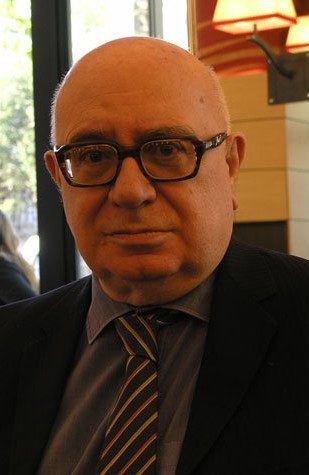 All our readers agreed that our articles about Russia or Russian authors and our interviews of Russian personalities were of the uttermost importance. Strauss and Parvulesco received the magazines regularly. I had regular contacts with Parvulesco, who unfortunately died in November 2010 (cf. The category “Jean Parvulesco” on http://euro-synergies.hautetfort.com ), and I know that he always read attentively everything coming from Russia: one should not forget that Parvulesco was among the first thinkers in France who were aware of the dangers epitomized by Brzezinski’s strategic projects in Central Asia and elsewhere, be it along the “New Eurasian Silk Road” or in the Caucasian and Pontic areas. Articles like “La doctrine des espaces de désengagement intercontinental” and “De l’Atlantique au Pacifique” (and within this important geopolitical manifesto, the paragraphs under the subtitle “Zbigniew Brzezinski et la ligne politico-stratégique de la Chase Manhattan Bank” – Both texts can be read in “Cahier Jean Parvulesco”, Nouvelles Littératures Européennes, 1989).
All our readers agreed that our articles about Russia or Russian authors and our interviews of Russian personalities were of the uttermost importance. Strauss and Parvulesco received the magazines regularly. I had regular contacts with Parvulesco, who unfortunately died in November 2010 (cf. The category “Jean Parvulesco” on http://euro-synergies.hautetfort.com ), and I know that he always read attentively everything coming from Russia: one should not forget that Parvulesco was among the first thinkers in France who were aware of the dangers epitomized by Brzezinski’s strategic projects in Central Asia and elsewhere, be it along the “New Eurasian Silk Road” or in the Caucasian and Pontic areas. Articles like “La doctrine des espaces de désengagement intercontinental” and “De l’Atlantique au Pacifique” (and within this important geopolitical manifesto, the paragraphs under the subtitle “Zbigniew Brzezinski et la ligne politico-stratégique de la Chase Manhattan Bank” – Both texts can be read in “Cahier Jean Parvulesco”, Nouvelles Littératures Européennes, 1989).
But at a first stage, we have to thank retrospectively the guy who translated Russian texts under the pseudonym of “Sepp Staelmans” (a “Bavarianification & Flemishification” of “Josef Stalin”!). He came to us, when he was sixteen and we all were still students, and asked to our friend Beerens what he could do for the movement: Beerens, who in this very evening had most probably drunken too much red wine, told him: “You should learn German and Russian!”. Incredible but nevertheless true: the young lad did it! Many other translations were done by girls who were trainees in my own translation office. More students indeed study Slavonic languages now than formerly, simply because there is no Iron Curtain anymore and they can meet youth of their own age in Slavonic countries. Michel Schneider, who once published the interesting political magazine “Nationalisme et République”, stayed in Moscow for a quite long time and sent us articles too. The former readers of Schneider’s magazine welcomed heartedly of course the Russian stuff he sent to us.
One day in Paris, just after having jumped out of the train from Brussels, I had a meal in the famous “Brasserie 1925”, just in front of Paris’ “Gare du Nord”, with a young lady, an incredibly attractive and intelligent woman seeming to come just out of the most beautiful fairy tale. She belonged to the team around the most efficient French present-day Slavists, such as Anne Coldefy, Lydia Kolombet or Marion Laruelle. They wanted to have copies of all our publications dealing with Russian topics for their archive.
Many other articles or essays on Russian matters were inspired by German books of Slavistics produced by the publishing house Otto Harassowitz in Wiesbaden. This publishing house is indeed specialized in Russian ideas and topics and issues regularly a thick journal called Forschungen zur osteuropäischen Geschichte (= “Studies on East European History”), where we could find many inspiring texts.
Can we call our own initiatives as belonging to the transnational “New Right” movement? How would you define this ideological movement? Who are its leaders?
The phrase “New Right” has of course many different significations. Especially in the Anglo-Saxon world it can delineate a rather multiple-faced libertarian movement inspired by Reaganomics, Thatcherite British conservatism, i. e. an renewed form of the old liberal Manchesterian way of managing a country’s economy, etc. The main theoreticians who inspire such a British or Transatlantic view of politics, state or economics are Milton Friedman, Friedrich von Hayek or Michael Oakshott. This is not, of course, the way we would define ourselves as exponents of a “New Right” (although in some particular aspects, beyond economics as such, Hayek’s notion of “catallaxy” is interesting).
Personally I would say that I belong to a synthesis of 1) the German “Neue Rechte”, as it had been accurately defined by Günter Bartsch in his book “Revolution von Rechts?”, 2) of the French “nouvelle droite” as it has been coined by Louis Pauwels, Jean-Claude Valla and Alain de Benoist at the end of the Sixties and 3) of the Italian initiatives of, first, Pino Rauti and his weekly paper “Linea”, and, second, of Dr. Marco Tarchi and his journals “Diorama letterario” and “Trasgressioni” before they started sad aggiornamenti in order not to be insulted by the press.
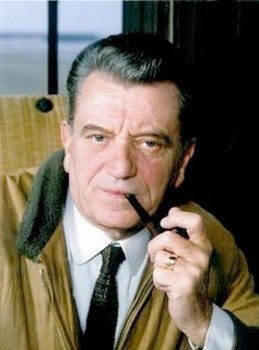 The German “Neue Rechte”, as defined by Günter Bartsch, is a bio-humanist movement, opposed to technocracy in the widest sense of the word, has got a biological-medical view on man (on anthropology). This implies the rather well-known option for ethnopluralism, which, subsequently, implies an option for all kinds of “liberation nationalism”, within and outside Europe, and for a broad conceived “European Socialism”. The story of the French “nouvelle droite” is better known throughout the world due to the many essays or books written about it since more or less four decades but not so much has in fact been written about the link between, on one hand, the early G.R.E.C.E.-Groups and, on a second hand, Louis Pauwels, editor of the futurology and prospective journal “Planète”, the organized “Groupes Planète” throughout France’s regions, the specific interpretation of the May 1968 ideology of Herbert Marcuse that had been developed in the numerous essays of the magazine, the critical approach of Western materialism, the speculations of Arthur Koestler about biology (“The Ghost in the Machine”) and his attraction towards parapsychology, the influence of the Gurdjieff group on the all venture, the presence in the redaction team of the Belgian thinker Raymond De Becker with his particular interpretation of Jung’s psychoanalysis (and his past as a “crypto-fascist” activist in the Thirties and the Forties, afterwards fascinated by Jungian psychoanalysis during the seven years he spent in jail). Moreover, “Planète” was in a certain way “ethnopluralist” as it supported the Occitan revival in Southern French regions such as Provence and Languedoc. Purpose was of course to dismantle the materialistic and rationalist Jacobine French State. From my experience in the New Right groups, I consider as essential the following topics: the metapolitical way of working, the critical view on the Western world (developed in a special issue of “Nouvelle école” on America and a remarkable issue of “Eléments” on the “Western civilization”), the exploration of the German Conservative Revolution through thinkers like Spengler, Jünger, Moeller van den Bruck or Carl Schmitt.
The German “Neue Rechte”, as defined by Günter Bartsch, is a bio-humanist movement, opposed to technocracy in the widest sense of the word, has got a biological-medical view on man (on anthropology). This implies the rather well-known option for ethnopluralism, which, subsequently, implies an option for all kinds of “liberation nationalism”, within and outside Europe, and for a broad conceived “European Socialism”. The story of the French “nouvelle droite” is better known throughout the world due to the many essays or books written about it since more or less four decades but not so much has in fact been written about the link between, on one hand, the early G.R.E.C.E.-Groups and, on a second hand, Louis Pauwels, editor of the futurology and prospective journal “Planète”, the organized “Groupes Planète” throughout France’s regions, the specific interpretation of the May 1968 ideology of Herbert Marcuse that had been developed in the numerous essays of the magazine, the critical approach of Western materialism, the speculations of Arthur Koestler about biology (“The Ghost in the Machine”) and his attraction towards parapsychology, the influence of the Gurdjieff group on the all venture, the presence in the redaction team of the Belgian thinker Raymond De Becker with his particular interpretation of Jung’s psychoanalysis (and his past as a “crypto-fascist” activist in the Thirties and the Forties, afterwards fascinated by Jungian psychoanalysis during the seven years he spent in jail). Moreover, “Planète” was in a certain way “ethnopluralist” as it supported the Occitan revival in Southern French regions such as Provence and Languedoc. Purpose was of course to dismantle the materialistic and rationalist Jacobine French State. From my experience in the New Right groups, I consider as essential the following topics: the metapolitical way of working, the critical view on the Western world (developed in a special issue of “Nouvelle école” on America and a remarkable issue of “Eléments” on the “Western civilization”), the exploration of the German Conservative Revolution through thinkers like Spengler, Jünger, Moeller van den Bruck or Carl Schmitt.
The Italian magazines were more interested in pure political sciences, even in some popularized articles from “Linea”, describing mostly the life of important and original political figures and of political scientists (such as Pareto, Mosca, Sombart, Weber, Sorokin, etc.) and explaining the main trends of their works. For us in Belgium the critique the Italian fellows developed to reject partitocracy was more interesting than the French or German ideas or debates. Why? Simply because the corrupted situation in which we lived and still live, the impossibility to realise genuine political programmes and an authentic reformation aiming at solving actual problems was very similar to what happened and still happens in Italy: in France, De Gaulle had made it possible to escape the narrowness of the 4th Republic’s petty politics and had suggested original ideas such as the workers’ participation, the “intéressement” of a factory’s personnel in the benefits of their company or a new form of Senate with representatives of the regions and the professions and not with aloof professional politicians, who could after some years of parliamentary life become totally cut from all social realities. Nothing of all these intelligent projects after him became reality but nevertheless at the end of the Seventies, there was still hope to translate these seducing programmes into French political life. In Germany at that time, the full results of the post war reconstruction could be felt and at that time the country didn’t experiment the impediments generated by the many dissolving consequences of a partitocratic system.
The French “nouvelle droite” acquired a worldwide reputation after a team around Jean-Claude Valla could manage in the autumn 1978 to man the redaction of a new and broad dispatched weekly magazine, the “Figaro Magazine”. Alain de Benoist was among the new journalists selected and took over the “rubrique des idées” (the “ideas’ column”) he already had run in the Figaro daily paper’s literary supplement, which was issued every Sunday. Louis Pauwels, the head of the new weekly “Figaro Magazine” and former chief animator of the “Groupes Planète” had accepted the deal proposed by the young wolves within the GRECE-team that proceeded from small national-revolutionist groups, students’ associations and tiny political parties that had failed to score sufficiently during several rounds of general or local elections in the Sixties. They all formerly were more or less linked to the monthly magazine “Europe-Action” mainly supervised by Dominique Venner. The events of May 1968 proved that the left or all the leftist non communist caucuses had actually seized the cultural or metapolitical power in France and elsewhere in Western Europe. Nowadays many studies tend to demonstrate that the American OSS and later the CIA had created artificially the 68 uprising in order to weaken Germany which became at the end of the Sixties an economical and industrial power again and to weaken also France which under De Gaulle became a nuclear military power having developed a competitive aircraft industry (Bloch-Dassault with the celebrated Mirage fighters that had been sold to Israel, India, Australia and Latin American countries as well as to some European countries such as Belgium). But in a first step the purpose of the metapolitical fight was to criticize and to suggest a counter-power to the 68 ideology as well as to defeat the heavy influence the communists still had in the French press at that time. This brought the “nouvelle droite” in a kind of precarious balance as, on the one hand, they still had columns in “Valeurs actuelles” and “Le Spectacle du monde”, which were publications owned by the press magnate Raymond Bourgine, who was an Atlanticist, and as, on a second hand, they had started to develop a thorough criticism of American values in both their separate home magazines “Nouvelle école” (1975), under the brilliant intellectual leadership of the Italian Giorgio Locchi, and “Eléments” (1976) under the vigorous supervision of Guillaume Faye.
Other ambiguity: Pauwels within the network of the “Groupes Planète” had staunchly supported some social criticism of the pre-68 movement and stressed the importance of the more or less Nietzschean notion of “one-dimensional man”, as a possible aspect hic et nunc of the “Last Man blinking his eye” whose deleterious influences one had to fight against, as well as the notion of an “Eros” able to wipe out all the petty consequences of a hyper-civilized and hyper-rationalized Western world, both notions having been theorized in Herbert Marcuse’s main books in the Sixties; now, in the columns of the brand new glossy “Figaro Magazine” (or abbreviated: “FigMag”), all the effects of the pre-68 and genuine 68 movement were submitted, with the help of the formerly marginal “pre-new right” would-be journalists, to a thorough criticism leading to a final and total rejection, in name of a new conservatism aiming at preserving the values of the West or at least of Old Europe. More than one theoretical gap between these discrepancies were not filled, leading in the four or five following years to a quite large array of misunderstandings. The eternal problem of lack of time couldn’t solve these discrepancies, leading at the end of 1981 to a clash between de Benoist and Bourgine, then to a recurrent blackmailing of Pauwels, who was threatened by attrition in the way advertisement agencies refused to place ads in the weekly FigMag. The constant blackmail Pauwels underwent aimed at sacking the “New Right” people and at throwing them out of the “Figmag” for the sole benefit of the exponents of the new ideological craze, coined by the system’s agencies: neo-liberalism.
A Russian “New Right” cannot be of course a tributary of all these Western European aspects of a general conservative-revolutionnist criticism of the main modern ideologies or political systems. A Russian “New Right” must of course be an original and independent stream, a synthesis of Russian ideas. According to the German Slavist Hildegard Kochanek, the Russian source of a general conservative revolutionist attitude lies of course in the Slavophile tradition, taking into account values like “potshvennitshestvo” and “samobytnitshestvo”, i. e. the roots of the glebe and the genuine political sense of community (“Gemeinschaft” in German). This implies, still according to Mrs. Kochanek, a kind of socialism, very different than the historical dominant forms of socialism within the 1st, 2nd and 3d Internationals, the West-European social democracies or the Soviet communism. Mrs. Kochanek sees Vladimir Soloviev and Sergej Nikolaïevitch Bulgakov (1871-1944) as the spiritual fathers of a spiritualized socialism, inspired by the very notion of Greek-Byzantine Sophia. Bulgakov, as an émigré in Paris, in the Twenties and Thirties, was clearly conscious of the lack of ethics in the several forms of real existing socialisms or communisms. Sophia and ethics help to break the vicious effects of “economical materialism” of both communist and social democratic doctrines, which are in the end not fundamentally different from the utilitarian Anglo-Saxon bourgeois ideology (“burzhuaznost”), as it was theorized by Jeremy Bentham and later by David Ricardo. Society, according to Bulgakov, cannot be seen as a mere mechanism of individual atoms trying to realize their own petty interests. In fact, Bulgakov produced long before the existence of a “New Right” a complete critique of the Western ideologies, that Guillaume Faye tried to formulate again —but this time in a non Christian intellectual frame— in his very first articles on “Western Civilisation”, published in “Eléments” in 1976, as well as in several articles and short essays about economical theory (but the main book Faye wrote about his views on economics was thrown into the wastebasket by de Benoist… I could only save some pages that I published in my “Orientations”, Nr. 5; the rest was spoilt by Faye himself, who used to clean his pipe with the scattered sheets…). In the former Soviet Union, Mikhail Antonov wrote some articles in 1989 in the well-known Moscovite journal “Nash Sovremennik”, urging the Russian economists not to adopt the Western unethical forms of economics but to continue Bulgakov’s work (see: Hildegard KOCHANEK, Die russisch-nationale Rechte von 1968 bis zum Ende der Sowjetunion – Eine Diskursanalyse, Franz Steiner Verlag, Stuttgart, 1999); in the eyes of Bulgakov, it is impossible to let economics not be counter-balanced by ethical brakes. Without such “brakes”, economics tends to invade the whole sphere of human activities and to destroy all other factual, intellectual or spiritual fields in which mankind is evolving. Hypertrophy of economics leads to an extreme “fluidity” of human thoughts and actions: as Carl Schmitt explains it in his posthumous “Glossarium”, we aren’t Roman surveyors anymore but seamen writing “logbooks”. He meant that we have lost all links with the Earth.
So we expect to learn more about Russian ideas through a totally independent Russian “New Right”, that wouldn’t in no respect imitate Western models.
When you ask me who are the leaders or the leading personalities of the Western European New Right, I will have to enumerate country by country the men who were and are the main exponents of this diversified ideological current. I’ll only select France, Germany, Italy, Spain and Austria. In France, the leading personality is of course Alain de Benoist, who seems to personify the movement in its wholeness. According to Pierre Chassard the core group that intended at the very beginning to launch a metapolitical struggle and to spread “other ideas” than those in power was a college of friends, was mainly built by old members of “Europe Action” or the “Fédération des Etudiants Nationaux”, or even people having tried initiatives in the Fifties. They selected some younger collaborators. Alain de Benoist was among the members of this new generation: he had been selected because he had made good synthesized reviews of books and magazines and had coined well balanced definitions for “L’Observateur Européen”, a bulletin which was at the same time the heir publication of the “Cahiers Universitaires”, the intellectualized publication of a students’ association (FEN – Fédération des Etudiants Nationaux), and later a supplement to Dominique Venner’s monthly “Europe Action” (“Europe Action Hebdomadaire”). After Venner resigned in July 1967, a team decided to abandon pure politics and opt for metapolitics: this was the very birthday of “Nouvelle école”, the wonderful magazine that seduced me six years later in 1973, when I was only seventeen. But next to the first emergence of what will become the still existing “New Right” as a later expression of the prior “Nouvelle école” redaction, Domnique Venner started the “Institut d’Etudes Occidentales” and a bulletin called “Cité-Liberté”, but the experience only last a year and a half (from November 1970 till July 1971).
Later, some people hoping for a more active approach created the G.R.E.C.E.-Groups, more or less along the same organizational lines as Louis Pauwels’ “Planète-Groups” in the Sixties, with a representative group in every important town; these groups were supposed to start a “cultural revolution” to get rid of the conventional post war liberal ideology and its “translations” in real life; for the “Grecists”, their similar town-based groups would be called “unités régionales”. These metapolitical groups had as a purpose to organize locally speeches, debates, conferences, seminars or art exhibitions to compete with the dominant ideologies. To inform the members of these new created network, a bulletin called “Eléments” was launched, very simple in its layout: it was a plain pile of sheets wrapped in a light cardboard cover. In 1973 it became a full magazine, not only designed for the members but for a broad public. Both magazines made Benoist’s reputation in and outside France. For me all positive aspects of Benoist’s initiatives are directly linked with “Nouvelle école”. Later Guillaume Faye, a figure of a new “Grecist” generation, gave an energetic punch to “Eléments”. We may say after four decades of observation that the soul having animated “Nouvelle école” is undoubtfully Alain de Benoist and that all his other initiatives are either awkward adaptations to the Zeitgeist or betrayals of the core message of the initial movement from which he proceeds.
I mean here that the birth of metapolitics at the end of the Sixties was a clear and harsh declaration of war against the dominant metapolitical powers and against all the political systems and corrupted personnel they support: the very aim of metapolitics is to let appear the dominant power as a full illegitimacy. In such a long lasting war you cannot make compromises, you never criticize positions you once adopted, you never negate what you once asserted. On the contrary you have to spot immediately the new pseudo-intellectual garments the dominant power is regularly putting on, each time when its usual instruments aren’t fully efficient anymore; this spotting job is absolutely necessary in order not to be trapped by the new seducing strategies the foe is trying to spread to fool you, according to the principles once invented by Sun Tsu. You cannot criticize positions you once opted for, as if you had to be forgiven for youth mistakes, because you lose then rather large parts of your operation field. If you reject, for instance, biology or biohumanism or biological anthropology (Arnold Gehlen) or all types of medical-biological questions, because you could eventually be accused by the press to be a proponent of a new kind of “biological materialism” or of a “zoological view of mankind” or of “racialist eugenics”, etc., you’ll never be able anymore to suggest a well-thought national health policy programme elaborated by doctors, who intend to develop a preventive health system in society. That’s what happened to poor de Benoist, who was scared stiff to be labelled a “Nazi eugenist” since the very first polemical attack he underwent in 1970, an attack that wasn’t lead by the left as such but by Catholic neo-royalists, who had purposely adopted a typical leftist phraseology and created an ad hoc anti-racist committee to crush the future “New Right” team they saw as competitors in the new metapolitcal struggle that was about to be fought in France in the early Seventies.
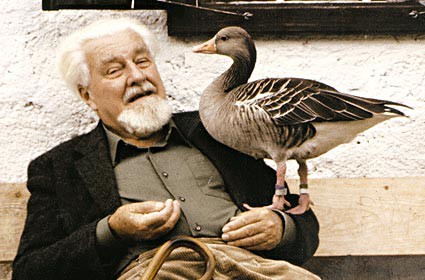 Some years later Alain de Benoist interviewed for “Nouvelle école” the Nobel Prize Konrad Lorenz who had written well shaped didactical books to warn mankind of the dangers of a possible “lukewarm death” if the natural (and therefore biological) predispositions of Man as a living being were not taken into consideration by the political world or the Public Health Offices. Although he had the backing of a Nobel Prize winner and of the Oslo or Stockholm jury having granted Prof. Lorenz the Prize, de Benoist has till yet feared to resume the kind of research “Nouvelle école” had tried to start in the middle of the Seventies. The paralysing fear he felt in the deepest of his guts lead him to express all kind of denials and rejections that were in no case scientifically or factually established but were mere makeshift jobs typical of political journalists manipulating blueprints in order to deceive their audience.
Some years later Alain de Benoist interviewed for “Nouvelle école” the Nobel Prize Konrad Lorenz who had written well shaped didactical books to warn mankind of the dangers of a possible “lukewarm death” if the natural (and therefore biological) predispositions of Man as a living being were not taken into consideration by the political world or the Public Health Offices. Although he had the backing of a Nobel Prize winner and of the Oslo or Stockholm jury having granted Prof. Lorenz the Prize, de Benoist has till yet feared to resume the kind of research “Nouvelle école” had tried to start in the middle of the Seventies. The paralysing fear he felt in the deepest of his guts lead him to express all kind of denials and rejections that were in no case scientifically or factually established but were mere makeshift jobs typical of political journalists manipulating blueprints in order to deceive their audience.
The further evolution of the first French “New Right” team involved some years of interesting developments from 1970 to 1978, with as only outside tribune the magazines published by Bourgine, “Valeurs actuelles” and “Le Spectacle du monde” (the famous book of Alain de Benoist “Vu de droite” is a 1978 anthology of articles having been first published in Bourgine’s publications). The creation of the “FigMag” in 1978 boosted the G.R.E.C.E.-groups and brought them into the very debates of the “French Intellectual Landscape” (“Paysage Intellectuel Français” or “PIF”). This period of intoxicating euphoria lasted till December 1981. During three years Alain de Benoist thought he had deep in his tuxedo’s pocket the (metapolitical) key to a very soon available power access or to a seat in the celebrated “Académie Française” and became incredibly arrogant and haughty in a typical Parisian way, what was in our eyes a very funny scene to watch and mock. These arrogant manners of him but also his exhilarating strokes of near nervous breakdowns, when he was once more scared stiff for futilities and swallowed handfuls of sedating pills, were very often aped in Paris, in all the province towns and in the Brussels’ pubs where we met to discuss the last tittle-tattle of the movement, leading to general hilarity and merriment. Guillaume Faye was of course the best animator in such merry meetings. This period was nevertheless the apex of the movement. With the publication of Faye’s “Le Système à tuer les peuples” and the ideological consequences of two publications of the group, the special issue of “Nouvelle école” about America and the American Way of Life and the issue of “Eléments” inaugurating a thorough critique of Western values, the movement had really broken with the usual Western and Atlanticist positions of the dominant rightist-conservative political field. It was now thoroughly different from the old far right groups on the French political chessboard but became also quite different from the established official right (the main political parties of Giscard d’Estaing and Chirac). The movement had its originality. But the world political surroundings had completely changed. First, the Socialists of François Mitterrand won the presidential elections in May 1981, a new political synthesis was about to dominate the world stage, combining the libertarian view of economics with the anti-Soviet and anti-fascist heritage of the usual Jewish-American East Coast Trotskites. This meant that the Trotskite intellectual gangs of the East Coast decided to abandon the usual leftist phraseology and to adopt a new vocabulary larded with conservative or rightist (anti-communist) expressions. At the same time, this new conservatism with Trotskite background became the proponent of libertarian economics and of an aggressive anti-Soviet foreign policy, destroying all the assets left by the endeavours of diplomacy (the German “Ostpolitik”, the policy of bilateral relationships between small powers of the EEC and of the COMECON suggested in Belgium by Pierre Harmel, the independant policy of the Gaullists and some of their most brilliant ministers such as Jobert and Couve de Murville, etc.) and re-introducing the geopolitics of anti-Russian containment inaugurated by the British geographer Sir Halford John Mackinder in 1904 and later improved by NATO-geopolitics as it had been coined by Nicholas Spykman and some other geopoliticians working for the American Foreign Affairs or for the US Army. The new synthesis of economical libertarianism, anti-communist conservatism and recycled Trotskite thoughts lead to the election of Reagan and to the introduction of “Reaganomics” in the United States. Simultaneously, new forms of slightly toned down Reaganomics or Thatcherite recipes were suggested in European countries: in Belgium the future Prime Minister Guy Verhofstadt, who was at that time a young challenging politician, started a campaign to let adopt Thatcherite methods in the Low Countries and a whole bunch of French journalists such as Guy Sorman, Alain Minc and Laurent Joffrin stood up for adjusting French economics to the new American or British standards.
The New Right wasn’t prepared at all to face such a worldwide well orchestrated offensive; first, its staff was not numerous enough to man all the bastions where a fierce defence fight was needed and second, under the too preponderant influence of de Benoist, the topics of economics or economical theory, of geopolitics and of political sciences and history of political ideas (such as the genesis of all the possible combinations the US American ideological sides were able to adopt when they changed their strategies in order to win elections) had been fully neglected in favour of purely cultural or literary speculations. In 1979, Giorgio Locchi left the G.R.E.C.E.-Group because he disagreed with the policy of “entrisme” in the press and in established conservative caucuses (he meant the “FigMag”-affair and the cooperation with a think tank of Giscard d’Estaing’s party, called “Maiastra”). At the same time a group left also the G.R.E.C.E -team to create a so-called “Club de l’Horloge”, more focussed on political and economical matters but even more predisposed to “entrisme”-policies.
The ambiguity was actually present: the G.R.E.C.E./New Right movement was indeed torn between two possibilities. Either it specialized in pure intellectual, cultural, literary or philosophical topics or it specialized in political sciences with both a theoretical branch and a pragmatic one, with the purpose of translating the theoretical principles into real political life, for instance by modelling solutions as they would be suggested in a Parliament. Giorgio Locchi thought it was to early to risk a way or another of “entrisme”; he was too conscious of the weakness and ill-preparedness of the movement and estimated that every kind of “entrisme” would lead to a fading away of the strong philosophical corpus. No actual conservative revolution was possible in his eyes in 1979 France. The withdrawal of Locchi was a catastrophe. In the only really scientific study about the “nouvelle droite”, that was written by Pierre-André Taguieff in 1993, Locchi’s and Mohler’s roles were duly stressed, as they were rightly considered as the real ancestors of the movement, as belonging to the small group of the “Founding Fathers” having already modelled the concept of their wished new conservative revolution in the Fifties: according to late Professor Piet Tommissen, who unfortunately died recently in August 2011 just after having written down his own memoirs, Mohler, as a secretary of the world famous German writer Ernst Jünger, was ceaselessly organizing meetings and speeches throughout Switzerland and Germany as early as 1952 when the future Flemish university teacher Piet Tommissen met him for the first time. Locchi was surely as active in Italy. His departure meant that the movement lost a part of its roots at the very moment when it seemed to have reached its apex. Alain de Benoist started, consciously or unconsciously, his strategy of cutting links with the old generation as he would also cut all links with newcomers in the movement: successively Faye, myself, Baillet, Champetier, Bresnu and many others were isolated and ruled out, reducing the movement to his single person surrounded by some narrow-brained lackeys. The movement ceased gradually to be a real team of good friends working on different topics, each according to his acquired academic knowledge, to become the tiny club of a guru with no other purpose that to repeat endlessly its own static patterns or, even worse, to repeat brainlessly the newly coined aggiornamenti without being conscious of the contradiction between them and the previous assertions of the guru.
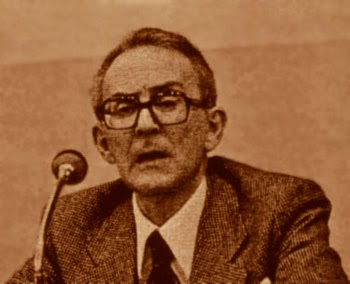
The fears Locchi had when he contemplated the future with pessimism were about to become plain reality at the end of 1981. In November 1981 the offices of G.R.E.C.E. were a real hive of activity in order to materialize the new craze or the new Machiavellian trick, that was supposed to produce the metapolitical and final breakthrough of the movement on the French political stage. Some got the pseudo-Evolian idea to “ride the Tiger” by adopting Reaganomics or Thatcherite ideas and to smuggle stealthily de Benoist into a team of representatives of this new monetarist or neoliberal network for which a huge international conference would be organized in Paris with the support of the “FigMag”. As de Benoist would be alone among the mostly American or British monetarist or neo-conservative eggheads of the panel, his would-be Machiavellian chums thought naively that no one would have smelt a rat that the whole affair had been set up secretly by the “new right” team. So in the first days of December an international conference, under the simple and pompous title of “Alternative libérale”, had been planned. It would have hoisted boastful Benoist into a network of conservative and neo-conservative political scientists or economists; our man would gather subsequently high consideration in the wide world and wouldn’t be taken for a “fascist” or a “crypto-fascist” anymore. But the whole affair was quickly discovered. The office of “Alternative libérale” was settled in a flat belonging to de Benoist’s mother who died some months previously. The very efficient spying network of the former Trotskites turned “neoconservatives” could rapidly spot who was poorly hidden behind the flimsy set-up. But the conference rooms had been rented, folders and pamphlets printed, etc. so that the initiative couldn’t be cancelled without risking to ruin the movement! Under harsh pressure of Raymond Aron (who, just like Karl Popper, had been fawned on by Benoist some weeks before in an article of the “Figmag”), of Norman Podhoretz and of several neoconservative caucuses from America and France, de Benoist was kicked out from the conference panel like a tramp who would have lost his way in a luxury hotel along the Riviera. The conference took nevertheless place with only a panel of recycled Trotskites, neoconservatives, Thatcherites and other birds of ill omen. The lesson we should draw from this ludicrous incident is that “Mr. Nouvelle Droite” has simply no ideas of his own; he is only a poor parrot aping others’ voices: he imitated Locchi or Mohler when he pretended to be a “conservative revolutionist” in the German tradition; he imitated some others when he wanted to participate to any possible “Alternative libérale”; he imitates a bright feathered queer customer like the Swiss Jean Ziegler when he plays the role of a “New Leftist” animated by a deep concern for the alleged “Third World”; he still plays the drama character of the catacombs’ fascist when he wants to get some dosh from a reduced bunch of old chums who were former activists of “Europe Action”... He has neither personal ideas nor stable views and only looks for opportunities to be hoisted on prestigious panels or to grasp money to pay the bills of his printers. But the funniest result of all is that the “New Right” teams helped to saddle neo-liberalism on the French political stage, a neo-liberalism that was closer to its arch-enemies, the “nouveaux philosophes”, who imposed the newspeak of “political correctness” during the three last decades, excluding by the way Benoist and his “New Right” from all official panels. Who were the cheated lovers, the “cocus magnifiques”? You can easily guess…
When the conference of “Alternative libérale” was being prepared feverishly, Faye was puzzled and disappointed. Exactly like Michel Norey, the only member of the team who had written for “Nouvelle école” (nr. 19) an introduction to an alternative history of economics, he belonged to a completely different tradition in the history of economical ideas. This tradition is the so-called “historical school” having roots in Continental Europe, in Germany as well as in France. Guillaume Faye, Ange Sampieru and I agreed that the way out of the liberal Western mess could only be instrumentalized by some revival and updating of the intellectual assets of the “historical school”. Faye studied the works of André Grjebine and François Perroux, Sampieru discovered long before priggish de Benoist the new French anti-utilitarian movement of the M.A.U.S.S.-team as well as the authors of the “regulationist school” and I suggested in the Eighties the reading of alternative histories of economical thought in order to bring didactically some order in our friends’ minds. In December 1981 I left definitively the Parisian offices of G.R.E.C.E., while Benoist was brooding and chewing over his failure to become a star in the new Reaganized and Thatcherized world. The result of this brooding and chewing over process in “Prig Benoist’s” scattered scatter-brain, the very result of the sad cogitations of Big Failed Chief, was —I must confess— a wonderful article in the issue of “Eléments” that was dispatched in France’s kiosks in January 1982. Imitating both Spengler and Evola, he had given his long and well-balanced article the title of “Orientations pour des années décisives”, an allusion to Evola’s booklet “Orientations”, issued in the early Fifties, and to Spengler’s “Jahre der Entscheidung” (“Années décisives” in French), published as a bestseller in 1933, the year when Hitler took over power in Germany. Deeply offended because he had been kicked out of his own December plot and had missed an opportunity to become a worldwide star, Prig Benoist took positions and adopted views that were diametrically opposed to the ones usually backed by the people reading the “FigMag” or the publications of Bourgine’s press group. In his article, Prig Benoist wrote a couple of sentences that were quite easily considered as pure provocation by the people in Bourgine’s teams: “We’ll finally prefer to put on our heads Red Army caps than to finish as fat old guys eating disgusting hamburgers somewhere in a nasty Brooklyn lane”. Faye, Sampieru and I found the sentence surely provocative but amusing and very well written. The result of this whim was that Benoist was immediately kicked out of Bourgine’s glossy magazines as soon as Boss Bourgine himself could read a copy of “Orientations pour des années décisives” (Benoist nevertheless could recuperate his position as a chronicler in “Le spectacle du monde” during the first decade of the 21st century, long after Boss Bourgine’s death). It lasted only some weeks before he was also evicted from the highly considered “Ideas’ column” of the “FigMag”, but as Louis Pauwels was a chivalrous gentleman, Prig Benoist could keep the “Video column”, where he had to comment films. The apex era of the French “New Right” was over. Definitively.
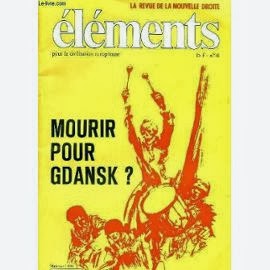
The movement had no bias of “petty conservatism” or of “alternative liberalism” anymore and cultivated from now on a kind of discrete “national-bolshevism”, trying openings to non conformist left clubs, just as the German “Neue Rechte” had done till yet. Sampieru and I were delighted. In January 1982, the second period in the history of the French “New Right” started. During this interesting period of decrease in real power or real influence in the media world but of increase in intellectual maturity, the movement tried to define itself as an alternative non Western movement, heir of the anti-American Gaullist positions and of alternative non Marxist socialist thoughts (such as those of Sombart, Sorel, De Man, etc.). In 1982, the German neutralist movement became better organized and started to acquire national dimensions it hadn’t previously had. In 1981, Willy Brandt’s son Peter Brandt had already showed the way as he had revived the Prussian socialist tradition alongside a big exhibition about past Prussia in Berlin, the first of the kind that had been set up after 1945 in the German and Prussian capital. Peter Brandt and others, among them Wolfgang Venohr, coined a new left nationalism that was seducing us, in the way that it wasn’t Western-oriented anymore and took into account the former Prussian/Russian alliances of 1813 and during the time Bismarck was in office. They rediscovered also the most interesting figure of Ernst Niekisch, member of the short-lived Soviet republic of Bavaria’s government (1919) and advocate of a German-Russian alliance against the West in the Twenties and Thirties, who was sent to jail in Hitler’s time. Behind the historical recollections that exhibitions, books and essays allowed, there was a thorough political re-orientation: Germany, if it wanted to be reunified as a neutral country in Central Europe just as were Austria since the Treaty of 1955 and Finland since the special agreements with the USSR signed in 1948, had to adopt a non Westernized pattern of thought. In our eyes, the same was true for all Western-European countries.
 I was the first in the New Right group to stress the importance of this new drift in European politics, as I was the only reader of Siegfried Bublies’ magazine “Wir selbst”, which was the main platform that had the real will to dispatch and popularize the new ideas. A summary of all the aspects of this important political drift at the very begin of the Eighties was published in the third issue of my magazine “Orientations” and Philippe Marceau, one of the most honest managers in the G.R.E.C.E.-team, invited me in June 1982 to hold a speech at the G.R.E.C.E. internal “Cercle Héraclite” to explain which were the fundamentals of the new German neutralist nationalism. It wasn’t easy to convince people, accustomed to NATO-ideology, to accept the new world view induced by the pacifist and neutralist movement in Germany and elsewhere in Europe.
I was the first in the New Right group to stress the importance of this new drift in European politics, as I was the only reader of Siegfried Bublies’ magazine “Wir selbst”, which was the main platform that had the real will to dispatch and popularize the new ideas. A summary of all the aspects of this important political drift at the very begin of the Eighties was published in the third issue of my magazine “Orientations” and Philippe Marceau, one of the most honest managers in the G.R.E.C.E.-team, invited me in June 1982 to hold a speech at the G.R.E.C.E. internal “Cercle Héraclite” to explain which were the fundamentals of the new German neutralist nationalism. It wasn’t easy to convince people, accustomed to NATO-ideology, to accept the new world view induced by the pacifist and neutralist movement in Germany and elsewhere in Europe.
When we started our bulletin “Vouloir”, we decided to transmit regularly information about what happened and was written in Germany in the wake of this renewed trend in international and national policy. We acquired the still sulphurous reputation of being “national-bolsheviks” as we refused to repeat or to take into positive consideration the usual views that the pro-NATO conservatives dispatched in the mainstream media.
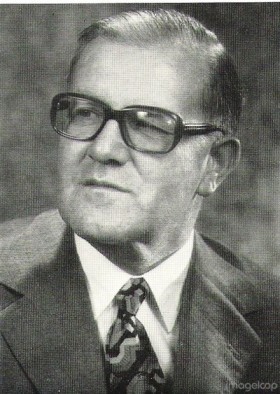 Alain de Benoist observed our activities very distrustfully but most probably due to the influence of Armin Mohler, who had established guidelines for a genuine European foreign policy in his book “Von rechts gesehen” and said that we had to bet on the “rogue states” in order to free ourselves from American mental colonisation, he accepted our views gradually. The projects for a neutral Mitteleuropa became obsolete as soon as Gorbachev proclaimed his glasnost and perestroika. We were awaiting the peaceful and gradual passage of Eastern Europe and Russia to a more gentle form of socialism, crossed with populist (narodniki) and national bias, cultivating Slavonic roots. This was of course a mistake as nothing like that happened. From 1982 to about 1987, the French New Right remained in a kind of no-man’s-land. The best publication issued in the Eighties was undoubtedly a booklet of Guillaume Faye (85 pages), “L’Occident comme déclin” (“The West as Decay”). Keep in mind the difference with Spengler: Faye doesn’t talk in his book about the decay of Western civilisation but about the West as a decay producing negative force encompassing the whole world.
Alain de Benoist observed our activities very distrustfully but most probably due to the influence of Armin Mohler, who had established guidelines for a genuine European foreign policy in his book “Von rechts gesehen” and said that we had to bet on the “rogue states” in order to free ourselves from American mental colonisation, he accepted our views gradually. The projects for a neutral Mitteleuropa became obsolete as soon as Gorbachev proclaimed his glasnost and perestroika. We were awaiting the peaceful and gradual passage of Eastern Europe and Russia to a more gentle form of socialism, crossed with populist (narodniki) and national bias, cultivating Slavonic roots. This was of course a mistake as nothing like that happened. From 1982 to about 1987, the French New Right remained in a kind of no-man’s-land. The best publication issued in the Eighties was undoubtedly a booklet of Guillaume Faye (85 pages), “L’Occident comme déclin” (“The West as Decay”). Keep in mind the difference with Spengler: Faye doesn’t talk in his book about the decay of Western civilisation but about the West as a decay producing negative force encompassing the whole world.
This long essay is certainly the best Faye has ever written. He described the process of Westernization in the all world. The essay is written in the best French, has a considerable intellectual depth and poetic punch: the Westernization of our Planet Earth is equivalent to a dark night in which no one seems to hope anymore for a revival of the pre-Westernized pluralistic world in Europe or elsewhere. But a deep night is never eternal, concludes Faye, as there always will be a new dawn. As the anti-values producing the darkest night cannot subsist in bright daylight, the values of daylight will be completely different and will be ours, as ours are diametrically opposed to the ones producing darkness. Faye: “At the time of the triumphant rise of equalitarianism, of the victorious forward movement of the Last Man’s mentality, a regeneration of the old European consciousness would have been impossible. Today, everything changes. The Last Man is settled in power and he cannot suggest anything else than what is already there. And what exists seems not to be sufficient”. But “the first light of dawn will appear after a long time”.
After having read the typescript of this wonderful booklet, Alain de Benoist got into a terrible rage and threw it into the dustbin and forbade the publishing department of the movement to let it be printed. Faye was deeply offended, disappointed and utterly distraught. He expressed his helplessness in front of his comrades from Franche-Comté, who read the typescript and found it of course terrific. One of them, Patrice Sage, decided to finance a first edition of the booklet not under his own name but under the very name of the publishing department of Paris, the so-called “SEPP” (“Société d’Editions, de Presse et de Publicité”), the personnel of which had previously been forbidden by Benoist to publish the typescript. He considered this generous gesture as a “present” to the poor “SEPP”-people, who alleged not to be able to afford the task of printing, publishing and dispatching Faye’s wonderful booklet. In three weeks time, the booklet was completely sold out! I was the only guy in Belgium who could get three copies of it. Our late friend Jean-Marie Simar, who had already published other Faye typescripts like ”Europe et modernité” and “Petit Lexique du Partisan Européen” (now available in an extended English version under the title “Why We Fight”) that had also been thrown pitilessly into the trashcan by furious Prig Benoist, decided generously to finance a new edition. I told him to be careful, as the booklet had not been printed by Faye or by a one of his good friends like Sage, but officially by the SEPP, which had sold the complete bulk without having paid a penny back to Faye. I feared of course that, although the SEPP hadn’t paid a single penny for the printing and hadn’t paid any royalties to Faye, they could nevertheless sue Simar for having reprinted and commercialized a publication of their own. So I travelled to Paris with Simar to let Faye sign a regular contract with Simar’s small publishing department, called “Eurograf”. Ten days later, a new edition of Faye’s “L’Occident comme déclin” was printed. A couple of weeks later, a silly pettifogging lawyer, sent by this two-faced obnoxious miscreant Alain de Benoist, phoned me, accusing me of being the editor of the new edition of Faye’s booklet, because, he said, I was “the man doing everything in Belgium”. I answered: “You probably mean that I am the King… so you must have dialled the wrong number…”. I said that there was a contract between Faye and Simar’s Eurograf; therefore he could only sue Faye for having signed two contracts with two different publishing houses… But as Faye hadn’t actually signed a contract with the SEPP and hadn’t been paid any royalties, he was of course free to sign contracts with others as the law regulating authors’ royalties foresees it in France. Later another lawyer, who admired Faye’s productions, took up his case and dismissed the SEPP’s pettifogging goggled lawyer. This incident shows how contemptible the mentality of Benoist and his fellow travellers is.
After this farcical and nonsensical incident, the movement went through a series of crises; first, in 1985, the General Secretary Jean-Claude Cariou, a deeply honest man wholly dedicated to the movement, was sacked simply because he very politely introduced a case asking for a better salary for Faye (who earned at that time 5000 French francs, which was a far too modest salary to live decently in Paris). The forced departure of Cariou let vanish the organisation and the logistics between all the local clubs spread throughout the French territory and abroad. Second, after Cariou’s preposterous and laughable “trial” staged by Benoist’s fellows in pure Vishynsky style, the official Chairman, an international leading specialist of Indian mythology,
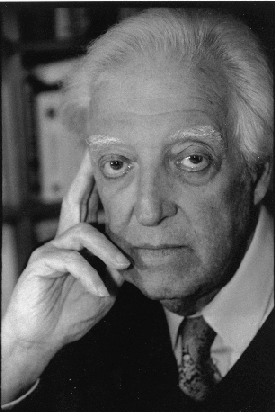
Jean Varenne, a benevolent and charming university teacher, whose relevant studies were financially supported by the UNESCO, left the movement without a single word in order to stress the deep contempt he felt. Third, Gilbert Sincyr, who replaced Cariou for a while, left the movement in order to prepare a hypothetical rebirth of it. Fourth, Faye left the movement, with the help of his now eternal chum Yann-Ber Tillenon, at the very beginning of 1987, writing to the members of GRECE a too gentle open letter, simply stating that the movement had reached its apex and that times had come to start something new. The second period in the history of the French New Right ended actually in a messy sewer in which Benoist revelled himself.
In Belgium, we had our own initiatives completely shielded from all the Parisian circus of hullabaloo and quackery. 1986 was even the best year of “EROE” (“Etudes, Recherches et Orientations Européennes”), the informal movement Jean van der Taelen and I set up in October 1983 in order to organize under one single appellation the series of conferences and speeches we intended to propose to interested people in Belgium. In 1987 we invited Guillaume Faye after he had broken with de Benoist, in order to give us a speech about the so-called “cotton language” (la langue de coton) or tone-downed “newspeak” he had theorized under the pseudonym of Pierre Barbès together with the celebrated French strategist François-Bernard Huyghe. Just one day before the meeting, which had to take place in the prestigious Brussels Hotel “Métropole”, Benoist let a quick-tempered idiot, he had previously stirred up and brainwashed, phone me to dissuade me to have further contacts with Faye. I simply answered that, first, I wasn’t the official organiser of the meeting (it was Rogelio Pete from the GRESPE-group) and, second, I wasn’t interested in personal quarrels fought by temperamental natives abroad, quite far away from Brussels, and that only interesting topics were stimulating me. “The cotton language” was one of them and therefore Pete, van der Taelen and I had invited Faye to talk about it. I had no other comments to utter, I said, and hung up.
The two years that followed after Faye’s departure were a kind of desert crossing for the GRECE-movement. In June 1988, I received a letter from a young lad called Charles Champetier, who wanted to purchase a complete collection of the magazines I had published (“Orientations” and “Vouloir”) till then. I immediately phoned him and we decided to see each other at a rally organized by Swiss friends some weeks later at the occasion of the Swiss national celebration, during which traditionally people light up bonfires on hills or mountain tops to commemorate the foundation act of the Swiss Confederation, i. e. the celebrated Rütli Oath. Champetier was only 18 at that time, had just been married to a sweet 16-years old girl he had met some months before at a bazaar fair and had already a beautiful baby son. We had a long conversation in Switzerland and we took the decision to meet each other in September or October in Brussels to see what could be done in the now scattered movement. Champetier published at that time a modest bulletin, whose title was “Idées” and which popularized the core ideas the GRECE had spread at the very beginning of its existence. In Brussels, he suggested to become himself a member of GRECE in order to give a new start to a movement that he admired so much: I answered that it might be a good step forward but I duly warned him that after the so many quarrels fought during the last four years the movement had become a “panier à crabes” (“a crabs’ basket”), where they all were constantly trying to cheat each other under the supervision of the cretinous twit having a voice like a foghorn, who had organised Cariou’s trial in 1985 and whom I nicknamed “Vlanparterre” (= “Wham! Again on the floor!”). Back in Paris young Charles asked to become a member of the then derelict club around moaning Prig Benoist and his barking wiseass Vlanparterre. So a new era started in the history of the core movement of the French New Right. We can call it the Champetier Era or the third period in the history of French New Right. It lasted twelve years, from the end of 1988 to the year 2000.
Champetier rightly thought that the movement needed a full refurbishing, that the core ideas had to be thought again according to new fruitful trends in philosophy (the so-called postmodernity) and sociology (the anti-utilitarian movement in economics and sociology, that had been discovered by Sampieru five or six years before). His first model was Marinetti’s Italian futurism, which had the will to sweep the world of thoughts and art from all the petty, useless and preposterous pseudo-embellishments the Biedermeier or bourgeois mentality of the 19th Century had added to Italian and European culture in general. Along similar lines, Champetier wanted to get rid of some boring ritornellos (“ritournelles”) of the movement’s old guard and to wipe out of European culture all the ideological rests of a broadly bad understood Enlightenment.
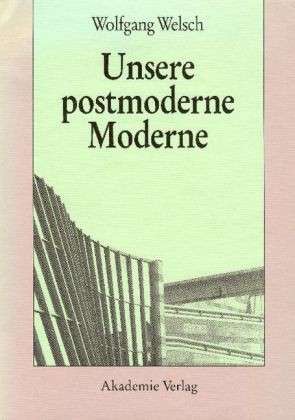 He invited me in June 1989 to talk about postmodernity, not in the usual way that prevailed in the end, i. e. the postmodern trend that leads downhill to more vulgar permissiveness and degenerated festivism (Philippe Muray), but in a way that had been suggested by the real and true old guru of the European New Right, who was Dr. Armin Mohler; he had read an excellent book on postmodernity, the only one I find worth reading on this topic even after so many years: Wolfgang Welsch’ “Unsere postmoderne Moderne” (“Our Postmodern Modernity”), published in 1988. In a didactical short essay in Caspar von Schrenck-Notzing’s magazine “Criticon”, Mohler delineated the reasons, our own reasons, to believe that postmodernity meant simultaneously the end of the eudemonist Enlightenment’s projects and febrile political schemes that had lead Europe politically and biologically to decay. Postmodernity meant going beyond the modern general project, as many avant-garde artists like for instance the dadaists and surrealists as well as the new traditionalists (like Guénon and Evola) wanted to surpass modern times. Ten months later, Champetier organised a conference about futurism, to which he invited Jean-Marc Vivenza and late philosopher and alpinist Omar Vecchio (who died some ten years later climbing a high peak in the Himalayas). Champetier gave also a new punch to the good habit to organise Summer Courses, that had been abandoned in 1987 and 1988. He created a kind of substructure called “Nouvelle Droite Jeunesse” (NDJ or “New Right Youth”), which attracted some new people and launched a new dynamic.
He invited me in June 1989 to talk about postmodernity, not in the usual way that prevailed in the end, i. e. the postmodern trend that leads downhill to more vulgar permissiveness and degenerated festivism (Philippe Muray), but in a way that had been suggested by the real and true old guru of the European New Right, who was Dr. Armin Mohler; he had read an excellent book on postmodernity, the only one I find worth reading on this topic even after so many years: Wolfgang Welsch’ “Unsere postmoderne Moderne” (“Our Postmodern Modernity”), published in 1988. In a didactical short essay in Caspar von Schrenck-Notzing’s magazine “Criticon”, Mohler delineated the reasons, our own reasons, to believe that postmodernity meant simultaneously the end of the eudemonist Enlightenment’s projects and febrile political schemes that had lead Europe politically and biologically to decay. Postmodernity meant going beyond the modern general project, as many avant-garde artists like for instance the dadaists and surrealists as well as the new traditionalists (like Guénon and Evola) wanted to surpass modern times. Ten months later, Champetier organised a conference about futurism, to which he invited Jean-Marc Vivenza and late philosopher and alpinist Omar Vecchio (who died some ten years later climbing a high peak in the Himalayas). Champetier gave also a new punch to the good habit to organise Summer Courses, that had been abandoned in 1987 and 1988. He created a kind of substructure called “Nouvelle Droite Jeunesse” (NDJ or “New Right Youth”), which attracted some new people and launched a new dynamic.
During three years I participated to the activities dynamically promoted by Champetier and was happy that things were still going on despite the departure of Faye. These happy times lasted till 1992. During these three years I committed, without being really conscious of it, an all array of terrible frightful sins. I did too much. I met too many people. I talked to a lot of old friends, who could have been seduced by my way of working and could perhaps think of financing my activities... I was reproached three articles: the one on Welsch’ book on postmodernity, an article asking to investigate the case of French Right (“Il faut instruire le procès des droites”) and the script of my speech in Italy during a conference set up in February 1991 by Dr. Marco Tarchi and Dr. Alessandro Campi in Perugia. I was also blamed for having written several articles in Michel Schneider’s new magazine “Nationalisme & République”, as, of course, I had been forbidden to write again for “Nouvelle école” and “Eléments”, two game areas reserved in all exclusiveness for the personal essays of Big Prig Guru and for the good boys who obsequiously and childishly venerated him. And worst of all other sins, I had been hired by Prof. Jean-François Mattéi to cooperate in a Presses Universitaires de France’s project to publish an “Encyclopédie des Oeuvres philosophiques”; my task was to write short didactical essays and establish bibliographies on mainly German Romantic or Conservative philosophers and on geopoliticians (as the scope was at that time to broaden the area of “philosophicité” and to include some non philosophers in the formerly exclusive realm of pure philosophy). Big Prig Guru was in rage because he personally hadn’t been hired by Prof. Mattéi simply because he couldn’t be hired as he has no diploma at all neither of a secondary school nor of a university. This doesn’t mean anything essential as so many educated idiots circulate around the world but for a University foundation such as the venerable PUF a sheepskin is inevitably compulsory.
 Since the very day he heard about it, he started to hate me from the deepest corners of his nicotinized guts, like he most probably had hated in the same way many other guys before, as Locchi or Faye. The effects of this hatred was of course more funny than tragic. When I paid my monthly visits to Paris after the PUF incident, I could immediately notice a changing of attitude by Charles Champetier and by a newcomer, Arnaud Guyot-Jeannin (nicknamed “Jeannot Toto-Lapin”), a funny-looking Brylcreem guy, who hadn’t obviously benefited from a real school education and was permanently uttering slogans and blueprints in a Frenchy arrogant authoritarian sharp abrupt voice but with a good measure of anxious nervousness, that was impossible for him to conceal, and with trembling and soggy hands, all features which would have made of him a good character for a Louis de Funès’ film. Champetier and Toto-Lapin were friendly at the beginning but as their brainwashing was going on with huge portions of venomous gossip, they lost, the poor, all humour and, worst of all, smiles were wiped out from their young still adolescent faces. During the short meetings in Parisian cafés, I had the impression to meet angry taxmen or atrabilious inspectors of I don’t know what. I used to dispatch during such informal meetings the new issues of “Vouloir” or “Orientations”: these were certainly welcomed till begin 1991 but afterwards, they all sulked when I handed over the issues. I remember one day Champetier saying in a low disregarding voice, “again an article on geopolitics – geopolitics doesn’t exist…”. And I answered: “Well, my dear, you may of course say that politics, in the usual trivial sense of the word (and not “the political” in the sense coined by Carl Schmitt and Julien Freund), is irrelevant but if you say that “geo”, id est “Gaia”, the Greek goddess symbolizing our good old Earth, doesn’t exist, it would mean that you are in a permanent state of levitation, what I can observe in a certain way in your behaviour and read in your scriptures…”. Spoilt sour by his Master’s gossip as he had become, Champetier was upset by my ironical answer and started in his turn to cultivate a dark kind of Tshandala’s hatred and rancorous resentment against my poor naturally easy-going person.
Since the very day he heard about it, he started to hate me from the deepest corners of his nicotinized guts, like he most probably had hated in the same way many other guys before, as Locchi or Faye. The effects of this hatred was of course more funny than tragic. When I paid my monthly visits to Paris after the PUF incident, I could immediately notice a changing of attitude by Charles Champetier and by a newcomer, Arnaud Guyot-Jeannin (nicknamed “Jeannot Toto-Lapin”), a funny-looking Brylcreem guy, who hadn’t obviously benefited from a real school education and was permanently uttering slogans and blueprints in a Frenchy arrogant authoritarian sharp abrupt voice but with a good measure of anxious nervousness, that was impossible for him to conceal, and with trembling and soggy hands, all features which would have made of him a good character for a Louis de Funès’ film. Champetier and Toto-Lapin were friendly at the beginning but as their brainwashing was going on with huge portions of venomous gossip, they lost, the poor, all humour and, worst of all, smiles were wiped out from their young still adolescent faces. During the short meetings in Parisian cafés, I had the impression to meet angry taxmen or atrabilious inspectors of I don’t know what. I used to dispatch during such informal meetings the new issues of “Vouloir” or “Orientations”: these were certainly welcomed till begin 1991 but afterwards, they all sulked when I handed over the issues. I remember one day Champetier saying in a low disregarding voice, “again an article on geopolitics – geopolitics doesn’t exist…”. And I answered: “Well, my dear, you may of course say that politics, in the usual trivial sense of the word (and not “the political” in the sense coined by Carl Schmitt and Julien Freund), is irrelevant but if you say that “geo”, id est “Gaia”, the Greek goddess symbolizing our good old Earth, doesn’t exist, it would mean that you are in a permanent state of levitation, what I can observe in a certain way in your behaviour and read in your scriptures…”. Spoilt sour by his Master’s gossip as he had become, Champetier was upset by my ironical answer and started in his turn to cultivate a dark kind of Tshandala’s hatred and rancorous resentment against my poor naturally easy-going person.
Some weeks after this short but significant incident, I once more sat together with Philippe-Nicolas Bresnu just before lunchtime at a nice Parisian terrasse for the same purpose of dispatching the magazines and Toto-Lapin came half a hour later to have the noon meal with us and to pick up the publications. He was very angry, ill-willy, and looked at us with big disapproving eyes, even before we had uttered a single word, and suddenly after some nonsensical and low-voiced babbled sentences, he shouted in the middle of the pub, next to the astonished other guests, “Alain de Benoist is the greatest philosopher of the 20th Century!”. “Maybe” answered Bresnu ironically, “but what about Heidegger then…?”. Toto-Lapin: “He has only paved the way for Alain de Benoist…”. We both burst out laughing and Toto-Lapin’s rage become even more funny as he repeated mechanically like a clockwork parrot what he had asserted while a poor fly landed on a tuft of hair on his forehead and couldn’t fly away anymore, as the frail insect was glued in the thick lay of gomina argentina our Benoistian superfreak conscientiously smeared his hair with every morning before leaving his luxury flat of the well-off suburb of Neuilly.
More and more nervous, Toto-Lapin went ahead shouting his usual nonsense as the fly was flapping its wings in a desperate attempt to leave the messy gum in which its many legs were perilously locked up. All the utterances of Toto-Lapin were punctuated by the buzzing noise of the poor bogged bug’s wings.

Bresnu, many others and myself thought it was high time to leave this ambulant lunatic asylum, where no sensible conversation was possible and where no clever and witty guys could be found anymore, except if you would have got the idea of setting up a vaudeville or a remake of Molière’s “Précieuses ridicules”. The definite break took place in December 1992, as I explained it previously in this interview. So the third period in the history of the French New Right continued till the thankless and ungrateful thrust out of poor zealot Champetier himself at the end of the year 2000, after his twelve long years of loyal duty, more, after having sacrificed his best youth years for the worshipping service of his Master (he had written just before his eviction: “No, no, He’s not my Master, He is my friend, my Marx” – besides, why Marx? And not Christ? Or was Champetier at that time of his young years cut out to be a new Lenin?). Champetier started a new career in some scientific magazines (like “Bio-Sciences”), dealing with the popularization of biological thought, in a kind of organic futurist perspective, which was absolutely not preposterous and potentially fruitful. This hidden life of post-New Right Champetier lasted till 2005-2006; after this period of independent autonomous metapolitical action, he worked professionally together with another former collaborator of Benoist, who had also left the movement, despite a key position he had held in the journal “Krisis”, also lead by Benoist since the end of the Eighties. Champetier had hoped that “Eléments” would have supported his new post-Grecist activities by commenting or reviewing his articles or essays. Not a single word was ever printed in Benoist’s magazines to help promoting Champetier’s editorial or internet activities after his departure: another proof that Chief Prig is a real malevolent and ungrateful bloke.
From the very day Champetier left the “cockpit” of the GRECE-movement, we can talk about a fourth period, the Post-Champetierite era, around the sole egomania of the “lider ridiculo”. The start of a fifth period could possibly be stated since the end of 2010, when things were taken over by an apparently intelligent young fellow, Pascal Eysseric, who, according to some rumours, would have Russian roots. The issues of “Eléments” under his supervision seem to be better balanced, even if they have now absolutely no impact on the “French Intellectual Landscape” (= “PIF or “Paysage Intellectuel Français”). But wait and see: how long will this apparently clever guy be able to serve in Benoist’s scaramouch troop? Is a plot against him already fabricated behind the stage by bad old geek Vlanparterre? Will he sacrifice twelve years of his healthy and vigorous youth, like the former yesman Champetier, before being pitilessly fired? When will he write down the excellent essay that will make Chief Prig angry and rancorous? The problem with efficient young managers is that they mostly ignore the sad past of a club or a company when they take it over, thinking that they are going to heal it from a transient disease, that is in fact not temporary but chronic with outbursts after apparent respites like by a patient suffering from malaria.

During the Champetier’s era, Pierre Vial founded the “Terre & Peuple” club in the Nineties, that in its initial phases was ruled like a kind of think tank within Le Pen’s “Front National”. As we weren’t French citizens and as we didn’t want to start a political movement in Belgium akin to the French FN or to become the representatives of a party being dominantly of “Old Right” signature, we didn’t join nor pay any attention to it. It’s only after the break between Vial and Le Pen that we started to be more interested in this new initiative born out of Vial’s mind, another historical figure of the French New Right. We all must admit now that “Terre & Peuple” has reached its full maturity, by publishing excellent articles about American imperialism and about globalization and plutocracy. Nowadays as a regularly published magazine, that you can buy at any newsagent’s shop as well in France as in Belgium, you only have Dominique Venner’s “Nouvelle Revue d’Histoire”. On the other hand, the people having founded the “Club de l’Horloge” in 1977-1978 run now under the supervision of Jean-Yves Le Gallou a very interesting website: http://www.polemia.com/. Yvan Blot too, a former leading figure of the “Club de l’Horloge”, runs several websites from which you can download interesting articles interpreting European political history according to the general Ancient Greek guidelines coined 500 years B.C. at the so-called “Axis period” of history (the phrase “Axis period” —Achsenzeit— was coined by the German philosopher Karl Jaspers and has been resumed nowadays by the Irish-British historian of religion Karen Armstrong, who developed and broadened the idea in her excellent book “The Great Transformation”; Dr. Armin Mohler called the German “Konservative Revolution” a kind of “Axis Time” in the history of European political thought as it had been influenced by Nietzsche during the decades between 1890 and 1930.
It’s nevertheless a pity that the core movement that started the “New Right” as such in France isn’t manned anymore by younger people of several generations having been recruited during the four or five decades of the history of the movement. All younger people have been ruled out, and the new young people will inevitably be ruled out when time will come, a deeply diseased system which will condemn the movement to a silent disappearing within the next fifteen years. Pascal Eysseric won’t be able of course to find back all those who have been kicked out and won’t be able either to recruit a sufficient mass of new people as the mainstream media keep now totally silent about the core group of New Right in France.
Let us now examine the “New Right” initiatives outside France. In Germany, when I started to investigate the scene, it was dominated by three giant figures: Armin Mohler (former secretary of Ernst Jünger), Baron Caspar von Schrenck-Notzing (editor of “Criticon”) and Gerd-Klaus Kaltenbrunner. Mohler wrote for “Criticon”, which was a magazine devoted to all possible currents in the so-called German conservative stream and in which Mohler could take a third of all pages to set out his ideas of an “existentialist-vitalist” New Right that wasn’t exactly on the same line as the bio-humanist views explained by Günther Bartsch. Kaltenbrunner wrote especially biographies and thematic essays for widespread collections of small books like “Herderbücherei Initiative”. Later, Kaltenbrunner’s essays were published in many different volumes. Next to these three giant figures, we had the Hamburg group around the simply produced magazine “Junges Forum” of Heinz-Dieter Hansen, mainly interested in people’s liberation movements in Western and Eastern Europe. In Munich, Hans-Dieter Sander published “Staatsbriefe”, with lots of articles about Russia from Wolfgang Strauss, before this former Gulag’s convict ceased all activities due to age and illness. In Northern Germany, Bernhard Wintzek published the monthly “Mut” with many articles of Gerd-Klaus Kaltenbrunner. During the two last decades, Dieter Stein, who at the very beginning of his career, published a small DINA5-bulletin in a small town in South-Western Germany, managed to develop it at giant scale and so to create the now prestigious weekly paper “Junge Freiheit” based in Berlin. To replace “Criticon” after the passing away of Baron Caspar von Schrenck-Notzing, the historian and theologian Dr. Karlheinz Weissmann, author of many interesting books around the so-called “Konservative Revolution” or around several other historical topics, launched the new high level magazine “Sezession”, together with a former officer of the scout armoured cars of the West-German army, Götz Kubitschek, and his wife Ellen Kositza. Their activities are coordinated by an “Institut für Staatspolitik”, organising one or two prestigious courses and conferences each year. There are also many other activities in Germany, especially the publication of many books around topics linked to the wide realm of “conservative-revolutionnist” ideas.
In Austria the many activities were of course linked to the German scene but the magazine of the Students’ “Burschenschaften”, “Aula”, gives us still a more genuine Austrian view on the usual topics. It is mainly through the Students’ movement that we got in touch with Austrian friends. A group of them came each time we organized seminars in the Flemish village of Munkzwalm. Genuine friendship was born. Then a group around Jürgen Hatzenbichler came to the French Summer courses in Roquefavour. Hatzenbichler, together with Selena Wolf, had created the small magazine “Identität”, in which ideas of the New Right were spread. Hatzenbichler unfortunately changed his mind and became a leftist activist; I cannot explain which were his motivations for such a switch as I lost all tracks of this very sympathetic young man, who explained me during our last phone conversation that he could observe from the window of his study a short but heavy fight along the Austrian-Yugoslavian border in 1992: a tank of the Federal Yugoslavian Army attacked a customs office held by Slovenian militiamen, who fired antitank rockets as retaliation, causing the complete destruction of the small building.
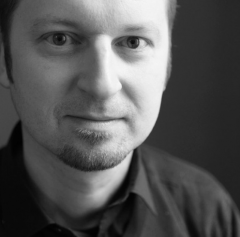 In this duty free customs office, Hatzenbichler used to buy his cigarettes every day. Due to the successes of the national-liberal party first lead by Jörg Haider and later by Hans-Christian Strache the Austrian scene became much more politicized than elsewhere in Western Europe. Most activities take place around the weekly paper “zur Zeit”, which was at the beginning an Austrian version of Stein’s “Junge Freiheit”. The magazine is now lead by Andreas Mölzer, an elected Member of the European Parliament. To be complete we also have to mention the excellent magazine “Neue Ordnung” published by Mag. Wolfgang Dvorak-Stocker, leader of the well-known publishing house “Stocker Verlag”. Due to the fact that Austria has been officially a neutral country since the Treaty of 1955, the views expressed by their publications are not Atlanticist but genuinely European and “neutral”, which could be a model for similar Western political parties. Till yet it has not been the case.
In this duty free customs office, Hatzenbichler used to buy his cigarettes every day. Due to the successes of the national-liberal party first lead by Jörg Haider and later by Hans-Christian Strache the Austrian scene became much more politicized than elsewhere in Western Europe. Most activities take place around the weekly paper “zur Zeit”, which was at the beginning an Austrian version of Stein’s “Junge Freiheit”. The magazine is now lead by Andreas Mölzer, an elected Member of the European Parliament. To be complete we also have to mention the excellent magazine “Neue Ordnung” published by Mag. Wolfgang Dvorak-Stocker, leader of the well-known publishing house “Stocker Verlag”. Due to the fact that Austria has been officially a neutral country since the Treaty of 1955, the views expressed by their publications are not Atlanticist but genuinely European and “neutral”, which could be a model for similar Western political parties. Till yet it has not been the case.
In Italy you had and still have a well working “New Right” club under the leading of Dr. Marco Tarchi, a political scientist from Firenze. Even if he would deny it now, as he became some years ago a distinguished and established professor, Tarchi owns his genuine way of working to the political activist Pino Rauti, who died at the end of 2012.

Rauti had volunteered in Mussolini’s Social Republican Army, was taken prisoner in Northern Italy after the German-Italian collapse in Spring 1945, almost escaped being shot by communist partisans when British paratroopers evacuated the Fascist prisoners, sent them subsequently to camps in French Northern Africa in order to select a good deal of them who could be eventually sent to Australia to be settled in the Western half desertified regions around the present-day town of Perth. Once liberated, Rauti and two friends, who didn’t want to settle in the hottest, driest and snakes infected regions of British Australia, reached Rome where they sang too loudly some patriotic songs in the streets, songs of the RSI that had of course be banned by the new government. They were sent for a couple of weeks to the Maria Coeli jail, where they found books of Julius Evola: the three fresh liberated RSI-Army comrades were immediately fascinated by the philosopher’s ideas and decided on the spot to pay a visit to him, once they would leave the Maria Coeli clink. When they rang the bell at Evola’s door along the Corso Vittorio Emmanuele, the Austrian servant told them that her master was still being cured in a hospital in Bologna, after a wall crumbled down and broke his spine during the siege of the Imperial City of Vienna by Soviet troops, making a cripple of the gallant former officer, alpinist and diplomat. They immediately rushed to Bologna and when they arrived, Evola had been sent back to his home in Rome. Finally they decided to resume political and metapolitical activities, a decision that lead, at least for Rauti to the foundation of the movement “Ordine Nuovo” in the Fifties (which was banned and sued by the Italian State) and later the weekly paper “Linea”. We received copies of “Linea” in Brussels and I could, as a very young man, observe that the cultural pages of the paper were indeed of the highest possible quality.
Tarchi belonged obviously to the Rauti’s branch of the so-called “Italian Social Movement” and decided first to develop more genuinely the satirical press of the movement and the metapolitical activities within its frames. By publishing the really “politically incorrect” satirical magazine “La Voce della fogna” (“The Sewer’s Voice”), Tarchi attracted the more radical activists. It was the “Sewer’s Voice” simply because the French artist and activist Jack Marchal created the famous comic figures of the

“Black Rats”, dwelling in sewers, after having imitated the Belgian anti-fascist cartoonist Raymond Macherot who created bad guys characters in the shape of angry rats, also dwelling in underground drains. Marchal’s “Black Rats” became a craze among “radical right” groups in the late Seventies and Tarchi adopted them and introduced these characters in his “Voce della fogna”, so that almost every staunch right-wing activist identified with the sinister and giggling “Black Rats” (a Swiss equivalent of “La Voce della fogna” was also published in Geneva under the title “Le Rat Noir”). But by starting his highly learned magazine for book reviews and philosophical comments, “Diorama letterario”, he attracted also the best intellectuals. “Diorama letterario” as well as “Trasgressioni” (with deep-thought essays) are still published in Italy nowadays. If there is a person incarnating “New Right” in its best form in Europe, it is undoubtedly Tarchi, as he is a genuine political scientist of high level, duly acknowledged by academic caucuses, whose studies are penetrating and extensive. More, Tarchi’s printed productions are the only ones in the New Right realm to appear regularly, just like Venner’s “Nouvelle revue d’histoire”. The Italian New Right, under the supervision of Tarchi, is a well-oiled machine: if the trains arrived on time in Mussolini’s Fascist State, publications are similarly issued in time in Tarchi’s own “New Right” preserve. The exact contrary of Prig Benoist’s and Vlanparterre’s erratic publishing policy in Paris.
But there is something pitiful in Tarchi’s person and activities: he is totally under the silly influence of Benoist, although he is a far more brilliant thinker and analyst and also a better manager of his publishing house. He surely belongs to an Italian tradition in political sciences, early born in the 16th century with Machiavelli and perpetuated by other high figures like Mosca or Pareto. When Tarchi worked in tandem with another political scientist from his home City of Firenze, Dr. Alessandro Campi, and when they published together the seven or eight wonderful issues of “Futuro Presente” —a perfect clone journal of Benoist’s “Nouvelle école”, what concerns the lay-out at least, the rest of the essays printed were genuinely original— they really reached an apex in the history of the Italian New Right. I take the opportunity here to thank once again Dr. Tarchi for the excellent and accurate translations he made of my own texts and those of my friends, and that appeared till 1993 in “Diorama letterario” or “Trasgressioni”.
But now I feel compelled to add some “venenum in cauda” in order to remain fully objective in my narration of the New Right avatars. I’ve just said that I considered and still consider Tarchi as far more brilliant than Benoist, so that I cannot understand his slavish submission in front of his Parisian shabby master. When I decided to leave definitively the GRECE-movement end 1992, I received some weeks later a furious, stupid and childish letter from Dr. Campi, who didn’t really know me personally, accusing me of being something like a naughty heretic for having had a cheek to abandon Prig Benoist and for allegedly plotting against the Lord of the New Right flies (maybe those very bugs that are attracted by Toto-Lapin’s gomina argentina…).

Therefore, in the paranoid crazy logic of the sectarian Benoist’s fan club, I had to be punished: I won’t receive review copies of “Diorama letterario” and “Trasgressioni” anymore and my articles as well as all the ones that I translated from German or from Dutch wouldn’t be translated into Italian anymore; and I was also forbidden to translate Tarchi’s or Campi’s articles. Obeying like a good drilled mutt, the prick-and-boobs trash creams seller from Antwerp, about whom I’m going to talk next, did exactly the same but without writing a letter… The old Flemish dumbbellified wacko knew pretty well that I could have translated and published it with the best polished sarcastic comments. Campi and Tarchi were in fact shooting in their own feet: no one in the Benoist’s silly small club was ever able to translate their own texts and their Italian readers were from then on definitively bereft of articles from Germany or elsewhere and subsequently fed up like fattened up geese, whose fat liver is a real “délicatesse” (with onion jam!), with Benoist’s and Champetier’s abstruse productions, which are of course inedible. Of the considerable amount of reviews, articles and essays of Tarchi, only one short interview of him was taken over and printed in an issue of Benoist’s “Eléments” and that single poor miserable translation was made in a period of more than twenty years! That’s what happens when you recruit tinkers, umbrellas’ repairers, parrots’ breeders, Parisian slappers who wipe the stinking shit off their babies’ bottom at the back of the conference room while Benoist and Champetier are explaining their sophisticated strategies in front of the assembled members!
Tarchi is obviously a high learned man, whose deep knowledge in political sciences I respect, but I must objectively add that he behaves nevertheless in a quite bizarre way in everyday life. Always dressed up with a sad lightless blue blazer and a white shirt, never forgetting his eternal dark and dull tie, he looks really like a stuffed up unbearable egghead or as a lugubrious funeral director. These outfits of him are worn in all circumstances, even in the hottest Mediterranean summers. One day, I decided with some other participants to the 1990 summer course in Provence to have a walk in the mountains surrounding the mansion, where we stayed, in order to catch a glimpse at the superstructure of the fantastic aqueduct that you can find at the back of the mansion’s park and to climb high enough along small stony paths to be able to see the celebrated “Montagne Sainte Victoire” near Aix-en-Provence and the blue water of the Mediterranean. To be able to perform this rather easy sports activity, you need of course to wear some comfortable casuals and shoes and have a solid canvas belt to fix your water flask, as you cannot walk under the hot sun of August in Provence without taking some water with you.
 Tarchi was upset and scandalized to see me in casuals (i. e. a mustard-yellow T-shirt and linen trousers!) and with a water flask! He made me some disapproving remarks in a 19th Century schoolmaster’s tone, adding that I looked too “military”, because of the flask (which was nevertheless very “civilian”-looking) and because of the canvas and sack-cloth boots of sand colour. From then on, after having shortly observed the sweat-drenched white shirt and the ugly rumpled tie of our dear Italian professor and after having stated once more his poor derelict appearance of a weak puny little thing, who was unable to understand our Zarathustra’s desire to climb higher and higher, I got the conviction that some screws were loose in his professor’s skull and that he had definitively a monotonously buzzing bee in his bonnet. Since January 1993, I have never heard of him anymore. Poor chap! Reality for him is quite narrow, just reduced to library walls, and beautiful nature and landscapes are banned from his dreary existence. His lungs are only breathing books dust (according to some visitors, his books are among his toys and his childhood’s Mickey Mouse/Topolino dolls in his parents’ house, where he still lived in the early Nineties…) and not, for instance, the wonderful lavender smell of the Provençal countryside.
Tarchi was upset and scandalized to see me in casuals (i. e. a mustard-yellow T-shirt and linen trousers!) and with a water flask! He made me some disapproving remarks in a 19th Century schoolmaster’s tone, adding that I looked too “military”, because of the flask (which was nevertheless very “civilian”-looking) and because of the canvas and sack-cloth boots of sand colour. From then on, after having shortly observed the sweat-drenched white shirt and the ugly rumpled tie of our dear Italian professor and after having stated once more his poor derelict appearance of a weak puny little thing, who was unable to understand our Zarathustra’s desire to climb higher and higher, I got the conviction that some screws were loose in his professor’s skull and that he had definitively a monotonously buzzing bee in his bonnet. Since January 1993, I have never heard of him anymore. Poor chap! Reality for him is quite narrow, just reduced to library walls, and beautiful nature and landscapes are banned from his dreary existence. His lungs are only breathing books dust (according to some visitors, his books are among his toys and his childhood’s Mickey Mouse/Topolino dolls in his parents’ house, where he still lived in the early Nineties…) and not, for instance, the wonderful lavender smell of the Provençal countryside.
In Spain many activities took place firstly under the supervision of journalist and author J. J. Esparza, who founded the journals “Punto y Coma” and “Hesperides”, together with a group of other comrades. These journals were all excellent and I let translate some of the most brilliant articles for my own publications. J. J. Esparza is a celebrity now in Spain as he is the author of two best-sellers: “La gran aventura del Reino de Asturias – Así empezó la Reconquista” (Esfera de los libros, Madrid, 2010) and “Moros y Cristianos – La gran aventura de la España medieval” (Esfera de los libros, Madrid, 2011). These two books are now the myth giving texts to remember all Spaniards the very core of their history, i. e. a strong will to resist and survive, even against a giant power as the Muslim world was one in the 8th and 9th centuries: history is born out of the spirit of people who never capitulate. Esparza didn’t follow the bad path some of the French New Rightists took in venerating everything that is Non European or Muslim while developing a kind of self-hate or “oikophobia”, as it is said now to stigmatize this attitude among European politicians to invent laws and rules to

crush patriots or to forbid or limit the celebration of European festivals like Christmas or Carnival because this could offend people having one day come from all possible alien continents. Simultaneously the same politicians spend huge amount of the taxpayers’ money to stimulate the celebration of the most strange and weird festivals of foreign folks or to sponsor new ridiculous festivities among which you can include the well-known “Gay Prides” that Serbians and Russians loath in the name of Orthodox decency. Among all those who were active in the frame of the old New Right of the Eighties, Esparza didn’t become an “oikophobic” traitor like many others. Esparza wrote also books to criticize the domination of television in the Western way of life (“Informe sobre la televisión – El invento del Maligno”, Criterio Libros, Madrid, 2001). He participated also to collective initiatives aiming at destroying the persistent myths of the Spanish and international Left, that were born during the Spanish Civil War of 1936-1939 and are still conveyed by the present-day left, which they now call the “Zapaterismo”. In this respect, Esparza was the editor of “El libro negro de la izquierda española” (Chronica, Madrid, 2011; “The Black Book of the Spanish Left”). As a brilliant hispanist, you should take all those ideas and books into consideration if you want to develop an original Russian New Right. Esparza’s life is the true story of a metapolitical success.
During the nine months I worked in Paris as a secretary of “Nouvelle école”, I had quite often the pleasure to meet for dinner Jaime Nogueira Pinto, who was the editor of “Futuro Presente”. After my stay in Paris, I’ve never heard of him anymore, what I regret it sincerely. Later, a Portuguese group belonged to “Synergies Européennes”, participated actively to all summer courses and published a magazine “Sinergeias Europeias”, before founding a publishing house in Lisbon. Nowadays the former leader of the “Terre & Peuple” antenna in Portugal, Mr. Duarte Branquino, runs a popular satirical paper “O Diabo”, that you can find at every newsagent’s shop in Portugal, and animates several websites like “Pena e Espada” while other animate another important site “Legio Victrix”, which posts many translation from French, Spanish, Italian and English.
Two weeks before I left Brussels to go to Paris to work for “Nouvelle école” in March 1981, I had received a letter from Michael Walker who was about to launch his magazine “The Scorpion” the first issues had as title the “National Democrat”). Walker was living in Berlin at that time and earned his life as an English teacher by Berlitz. Next to a Canadian friend, Paul Thomson, he was the very first man to pay me a visit at my new office in Paris. We immediately planned common activities and I participated several times, even once as the chairman, to his annual conferences in London. Michael with some friends of him had founded a club called IONA, which was quite active in the British capital in the Eighties. He and his friends came also to Brussels or elsewhere in Belgium to address meetings and I had often the opportunity to meet him in France too. After I left Benoist’s Parisian circus, I learned one hot summer day about a stay of Michael Walker in the Provençal mansion where the movement’s members regularly met. Flemish and French friends, who told me about everything that happened there during the summer courses, told me Michael had had a lot of fun during his stay over there and described me one of his funniest and most mischievous misadventures. I wanted to talk Michael more about this joyful summer course and to invite him to further activities that I planned for the next autumn. When I phoned, he was very surprised that I knew everything that had happened in Roquefavour during the summer course and he reacted in a quite bizarre way, as no one has ever heard about him in New Right clubs after that… There was absolutely no reason to disappear like that, as Michael did exactly what a German friend of Hatzenbichler did one or two years before. I deeply regret not to hear anything more from Michael. Life is sometimes quite cruel. And as far as I know, “The Scorpion” isn’t published anymore and Michael has no webpage.
Personally I wouldn’t say that I actually and mentally belong to the New Right, especially if you mean the French branch of it. I always felt myself as a stranger in their hectic and often pathological surrounding. It is mainly due to the fact that the Belgian and French political and ideological systems are thoroughly different and that you cannot import purely and simply a French system into Belgian reality, be they Flemish or Walloon. I had thought of course that as an atypical and a wilful European movement, at least in its declared intentions, the French New Right could have been a springboard to develop a genuine Paneuropean movement, i. e. a rallying movement for all those who wanted to rediscover and reactivate their deepest roots in all the countries whose populations were from European kinship. I was very often disappointed. I remember having invited in 1982 at my place in Wezembeek-Oppem people from all parts of Belgium as well as the main members from the Lille GRECE-group in order to try to cooperate pragmatically as closely as possible, for instance by organising common conferences, by inviting the same speakers in all of the main cities in Flanders, Wallonia and in the two “départements” of Nord and Pas-de-Calais in order to maximise the impact of the texts producing people we had among us. First, the stupid, stultified and uneducated (at that time… he got a diploma for a quite good end paper two decades later when he was almost 60…) leader of the Flemish group in Antwerp, a clumsy worshipper of Big Prig Benoist, refused to come as he stubbornly refused to be anything else but the true, only and main vicar of his venerated Chief in our provinces, as he claimed he alone had the right —because once upon a time he became a rich man by selling Swedish miracle powders to get wonderful erections or wonder creams to get big boobs— to invite people to common meetings. Second, another totally uneducated tosspot, who also foolishly venerated Big Prig and was officially the head of the Lille “GRECE-regional unit”, wanted to control all the cities where conferences and speeches would have been held in French under the name of “Fédération Nord” of which he would have been the almighty chairman. By saying “Fédération Nord” he upset a representative of the Liège-group, a Walloon university teacher who asked spontaneously an ironical question: “Why a “Fédération Nord”? From which entity are we a Northern part?”. He then said that we could say in Belgium to be a part of the Southern provinces of the former United Kingdom of the Netherlands (1815-1831) or the Far-Western-Middle part of the former Holy Roman Empire of the German Nation or, especially in Liège, the very middle part of the Carolingian core of the early medieval Austrasian entity or a remote province of the Austrian Hapsburg Empire of the 18th Century. But in no case a new “Northern” appendix of a French Republic centred on the City of Paris. This incident will in the aftermath astonish many neutral Flemish observers, accustomed to discover views in the Flemish movement and literature that were opposed to any unique French tutelage: it was a genuine Walloon from Liège —whose direct ancestor survived after having been run over by the Platev’s cossacks the crowd in Verviers acclaimed as the liberators who repelled Napoleon’s troops— who opposed a total French control on the New Right circles in the Low Countries and not the Flemish alleged leader, who slavishly venerated his Parisian master and later retired somewhere in a lost village in France maybe to have more opportunities to kiss his Master’s hands and feet in an act of total devotion. He should have become now an innkeeper in a kind of Gaulish “middle-of-nowhere-hamlet”. Many Flemish nationalist thinkers have complained during almost a century that the common Flemish people often have had in history a slavish mentality in front of French-speaking bosses. This was also true in the main club of the Flemish New Right in the Eighties of the 20th Century, a club exhibiting proudly the GRECE-logo on the front page of all its publications, signalling an actual and total dependence from the initial French club. But the Antwerpian fathead’s refusal to work closely with us prevented the systematic translation of the Dutch texts into French or into other languages: the Dutch and Flemish authors worked subsequently for a narrower audience instead of having the opportunity to participate to a wider discussion forum spread throughout Europe and the world. Narrow brains always produce narrow things.
We had decided after this meeting 1) not to become dependent of the Parisian entity, 2) to accept a common New Right initiative only if voices from France, Germany and Italy and from other minor countries were heard equally and benevolently as emanating from a college of pairs and not dominated by the Parisian team around Prig Chief, 3) to reject the appellation of “New Right” as it was totally inadequate in Belgium where the word “right” had completely disappeared from the political vocabulary and had also not very often been used. To judge critically political matters and to suggest new policies like a shadow cabinet would do, the French New Right offered almost no intellectual instruments as Belgian political life is structured in a completely other way. It would have been better to popularize the Italian matters and topics about partitocracy and political corruption as the Italian political stage is more like the Belgian, Austrian and German ones. But the fathead, who sold prick-and-boobs powders and creams in Antwerp, rejected the idea as, you know, he is a kind of Northern Viking genius (his powders and creams were Swedish, weren’t they?), even if he has only the poor narrow shoulders and the half beard without moustache of a derelict Mennonite clergyman (so that he couldn’t defend himself, just one day before his second wedding party, when he came out of a shop selling cheap china dishes…); he would have lost his imaginary rank and title and his alleged “Northerness” if he would have read, translated and dispatched mean Italian/Latin texts and books. The result of this cretinous behaviour is that the Flemish political identitarian movements and parties, that got lots of votes in the Nineties and till 2004, were never really prepared on intellectual level to face the dominating partitocracy and couldn’t crack it as Berlusconi (Forza Italia), Fini (Allianza Nazionale) and Bossi (Lega Nord) did it partly with the assent of a good deal of the population in the Nineties in Italy (the operation “Clean Hands” or “Mani pulite”). The new Italian triumvirate of the early Nineties could achieve the job and largely discredit patritocracy because they had behind themselves teams of political scientists perfectly drilled in thoroughly criticizing a corrupt plural partitocracy and able to suggest practical solutions (see Gianfranco Miglio’s book “Come cambiare” that I let summarize for “Vouloir” in January 1993). One more metapolitical struggle that has been lost by the historical “benoistian” New Right…
So, if you consider yourself to be members of a imaginary world movement called “New Right” or not, I don’t really care. The important thing for you is to start a revival of the Narodniki ideas in an actualized way and to remember that the phrase “conservative revolution” was first coined in Russia by Youri Samarin and F. Dmitriev in 1875 in a short essay “Revoliutsionny konservatism”. Before this essay was written, the phrases “conservative revolution” or “revolutionist conservatism” in Germany had only been quoted without having been properly defined. It’s up to you to table on this very Russian heritage. Besides, one should never forget this sentence once written by Dieter Stein: “The notion of ‘New Right’ can arbitrarily be filled by any possible contents, can be stretched or slackened in all possible directions like chewing gum, so that malevolent people can suspect (of “fascism” or of any other odd feelings) everything and/or everyone linked at random to it” (“Auflösung eines Begriffs”, in: “Junge Freiheit”, nr. 30/2003).
Do you consider Alain de Benoist as belonging to the New Right or to the New Left? Explain your answer…
Well, he belongs historically and obviously to the New Right as he is generally considered as one of the main founding fathers of the movement or as the sole representative of it after all the memorable quarrels that tarnished the four or five decades long history of the movement. But all know that Benoist is unhappy with the appellation of “New Right”, that was first given to his movement by the French weekly magazine “Le Nouvel Observateur” in 1979, as malevolent journalists often equate “New Right” and “Extreme Right” or even “Fascism”, in order to wipe out all the potential innovations that a reappraisal of repressed or forgotten ideas would soon arouse and subsequently suggest other solutions to present-day affairs. In the French context, the purpose was of course to prevent the emerging of any possible challenging intellectual club, that could possibly ruin the established metapolitcal power acquired by the “nouveaux philosophes” in all the French mainstream medias. These “nouveaux philosophes” around people like Bernard-Henri Lévy or André Glucksmann were certainly former leftists or even Maoist thinkers or Trotskite intellectuals and had therefore a genuine “left” label, even if they never cared really about the actual problems of the French working class; they developed during the four last decades a kind of new ideological blend made of
1) anti-communism (by communism they meant the USSR as a state and a superpower —a “panzercommunist” main power on the chessboard as they used to say— and the French PCF as a possible anti-American force next to the nationalist Gaullists) and of
2) American neo-conservatism, exactly as the current neo-cons in the United States were in former times mainly Trotskite intellectuals of the East Coast who turned conservative shortly before Reagan took over power in Washington D.C.
The dominant ideology in the West, exported by the many NGO’s everywhere in the world, is now this very mix of
1) disguised Trotskite revolutionism (where the “permanent war” waged in the area of the “Great Middle East” and elsewehre replaces the hoped “permanent world revolution” coined in the Thirties by Trotsky), of
2) neo-conservatism, of
3) anti-communism, of
4) neo-liberalism as the most useful and efficient tool to globalize the world economy and of
5) left-overs of the typical religious puritanism of the protestant “dissidents” of 17th Century British zealots expelled from England and sent on ships like the Mayflower to America to found there a “New Jerusalem” according to their cock-and-bull Biblical views.
This puritanical protestantism remains the core ideology of the United States (what some observers call the “American theocracy”) and are responsible for all the eager fanaticism under “democratic” or “liberal” disguises that the US produced during recent history and that outbalanced the traditional way of practicing diplomacy. It also explains why the United States are the best allies of the worst Wahhabite islamists in parts of the world like Libya, Chechnya or Syria. There is a global plot of all the most obscure fundamentalists against all normal political conditions in the world, as they have been derived from Aristoteles’ philosophy in the Catholic, Byzantine-Orthodox and Islamic (Ottomanic and Persian) civilisational realms. Against Aristotelician political and pagan realism, Puritans of dissident Protestant provenience, Wahhabite Muslims, Jewish zealots and Trotskite chaotic revolutionnists are constantly rebelling, creating permanently instability on the world chessboard that should according to Kissinger, Brzezinski or the Clintons (wife and husband) be totally turned upside down.
In front of this mainstream new dominant ideology in France, the pseudo-rational purpose of de Benoist is to avoid being labeled a “Fascist” or being accused of supporting in a way or another Le Pen’s National Front so that he could be accepted as a full legitimated partner in fake pluralist debates in the press or on television, where he would play the role of a gentle “non-conformist” who could perhaps lightly spice the controversial discussions: to say it in a nutshell, Mr. “Nouvelle droite” would like to be considered in Paris intellectual clubs as a mere pinch of soft mustard.
 He simply longs for being on the stage again, the very stage from which he was expelled in December 1981 by the future winners in the metapolitical game. In this sense he is very naive as the kind of people now in power, and controlling tightly the media-ruled “soft power”, will never be ready to leave him even an extremely reduced room to express his views. It is for such a flimsy and unachievable ambition —being a mere pinch of soft mustard in the dreary meal boiled in the hotchpotched kitchen of the narrow-minded French media world— that he has betrayed many of his old friends like Guillaume Faye and that he refuses to discuss objectively the problems arousing from mass immigration and, subsequently, by a rampant islamization in big Cities (and as an odd-thought population demographical graft, a “chaotization” in large urban areas within the main states and civilizational realms considered since President Carter as mere “aliens audiences” areas, even if they are theoretically good “allies”).
He simply longs for being on the stage again, the very stage from which he was expelled in December 1981 by the future winners in the metapolitical game. In this sense he is very naive as the kind of people now in power, and controlling tightly the media-ruled “soft power”, will never be ready to leave him even an extremely reduced room to express his views. It is for such a flimsy and unachievable ambition —being a mere pinch of soft mustard in the dreary meal boiled in the hotchpotched kitchen of the narrow-minded French media world— that he has betrayed many of his old friends like Guillaume Faye and that he refuses to discuss objectively the problems arousing from mass immigration and, subsequently, by a rampant islamization in big Cities (and as an odd-thought population demographical graft, a “chaotization” in large urban areas within the main states and civilizational realms considered since President Carter as mere “aliens audiences” areas, even if they are theoretically good “allies”).
As you cannot find the magazine “Eléments” anymore since at least twenty years in Belgian newsagents’ shops, I have to buy my copies in France when I travel in some parts of this neighbor country. In November 2010 I found a copy of the then last issue in Nancy, where my wife likes to have a delicious cup of coffee on the celebrated “Place Stanislas” and to do some shopping. I unfortunately lost this issue somewhere during the rest of my travel through France, Switzerland and Germany (I visited Heidegger’s favorite holiday place in Todtnauberg where this world famous Black Forest philosopher wrote a good deal of his books). In this issue, Stuffed Shirt Alain de Benoist tried to demonstrate that the “New Right” was in fact the real “New Left” and the true inheritor of Marx’ ideas as well as the devoted intellectual protector of the masses of African and Muslim immigrants against the centralization and assimilation efforts of the alleged “xenophobic” French State’s system, while the “New Left” was genuinely a neo-conservative islamophobe movement or had become gradually such a faction, due to the blend first with “Reaganism” and second with neo-conservatism under Bush Senior and Bush Junior and maybe also with the Zionist Likud ideology. His old silly chum Michel Marmin, in the same issue, asserted that the New Right, somehow contrary to Maurras’ views at the beginning of the 20th Century, was a movement inspired by Immanuel Kant (and why not by Mother Theresa from Calcutta or Father Christmas from a heavens’ portion above Lapland...?).
The exercise of proving that Left is Right and vice-versa could be very entertaining and philosophically challenging, provided it would have been written in a humorous style. It was not. Prig Benoist wrote all that very seriously, in the credulous hope he would have been finally taken as a genuine leftist by the Left and would have transformed his alleged false rightist young fellows in true new leftists more leftist than the usual leftists (Do you follow...?). Such an attempt is of course preposterous. Prig Benoist and Aloof Marmin tried to sell the wide public opinion the absurd story that they were in fact the only actual New Left and that nobody in the world could grasp it till yet... But would ultimately grasp it now, once all clever minds all over the world would have read the brittle pseudo-intellectualized demonstration printed in “Eléments”.
The problem is that they cannot be labeled “New Left” as they never had any historical connection with, for instance, the “Frankfurter Schule” or with any other of its subsidiaries like for instance the group around Ernst Bloch and Rudy Dutschke or, in France, with clubs around Sartre’s “Les Temps Modernes” or with the Christian personalist caucuses around Jacques Maritain or Emmanuel Mounier and their journal “Esprit” (even if Benoist participated in a debate with their late heir Jean-Marie Domenach in 1993; I think Domenach also wrote an article for Benoist’s third magazine, “Krisis” but cooperation ended quite soon with that single piece of writing). Benoist is almost 70 now: I think that it is too late for him now to change views and that it would also be completely silly to play the role of a kind of ageing pagan leftist Saint Paul, converting to the faith of his former foes on an imaginary way to an even illusory Damascus (or is the joy of putting one’s flabby bottom on the armchair of a television studio worth all denials...?).
I think that, due to these nonsensical exercises by which Prig Benoist still tries to find a position as a now allegedly mature man, he is finally nowhere anymore as his recurrent “aggiornamenti” produced only confusion and puzzlement first in his own flibbertigibbet brain and second in his readers’ minds (be they friendly towards his initiatives or not). Fact is that he is a pathological coward and that he invents constantly new intellectual constructions that he doesn’t understand properly himself as he is finally a poor awkward philosopher (Faye used to say: a “scissors-and-paste thinker”), simply because he is permanently scared witless to be once more insulted by adverse gannets as a “Rightist” or even worse as an “extreme Rightist”, a “Fascist” or a “Nazi”. As I once wrote: “Fear is a bad adviser”. Indeed you cannot achieve anything if you’re pathologically dominated by fear (Benoist couldn’t properly understand what Evola or Jünger —his alleged favorite authors whose numerous books he claims to have read and meditated in order to absorb literally all their thoughts— told us masterfully about fear and fearlessness, be it as an alpinist in the mountains around the Lyskamm, a soldier in the WW1 trenches or a reader of martial Buddhist texts).
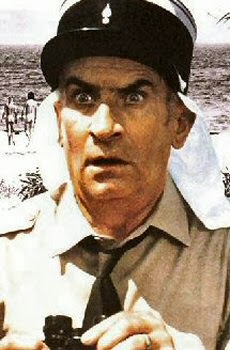
After all, Benoist can call himself as he wants to be called; it would only be one more ludicrous sketch in the long vaudeville à la de Funès of which his personal existence and his personal feelings were parts. Only the poor Pierre-André Taguieff had once upon a time, when he was writing a book about the “nouvelle droite”, the weakness of believing the self-concocted fiction that Benoist is hawking about himself, fabricating the fable of a serious intellectual, reading heaps of books since his caring childhood, while he is often only a substandard “feuilletonist” and a plagiarist. When Taguieff heard one day the truth about Benoist’s failures in the Lycée where he studied as a teenager, failures that of course Chief Prig had stupidly concealed as we all had failures as teenagers or as students, he phoned me while he was beside himself and complained that he had been abused...
How did you get to know Alexander Dugin? What is your opinion about his works and his Eurasian ideology? Are you still in contact with him?
I met Dugin for the first time in 1990 in a Parisian bookshop. It was still a time when you almost never met Russian people in Western Europe, except in compact groups duly coached by guides and interpreters, as we did for instance in Lübeck, Germany, in Spring 1979. You also could recognize Soviet citizens at their clothes as there wasn’t yet a standardization of garments like in present-day globalized world. When I heard a Russian man and his wife talking with the usual charming Russian accent, I got immediately the impression that the person in front of the bookshop’s desk was Dugin himself. He had already written a couple of letters to me and, also of course due to Wolfgang Strauss’ articles, I knew already quite a lot about him. I went straight to him and asked: “You are Alexander Dugin, I presume...?”. He looked very afraid as if I had been a policeman in plain clothes. But I introduced myself and we had a long and friendly conversation in a pub. Later I interviewed him for “Vouloir”. He also held a speech at a GRECE annual meeting in 1991. About one year later, he invited Benoist and myself to Moscow where we met personalities like Guennadi Zyouganov and Alexander Prokhanov, former editor of “Lettres soviétiques”, who had published the very first complete issue of a Soviet magazine dedicated to Dostoievski. Beerens and I could buy copies of it in Brussels in 1982 (if I remember well...), together with a long study of Boris Rybakov about Russian paganism printed in the Journal of the Soviet Sciences Academy. During my short stay in Moscow a “Round Table” was held in the offices of the newspaper “Dyeïnn”, which was run by Prokhanov at that time. A press meeting had also been organized by the tandem Dugin/Prokhanov where I was interviewed by people from the journal “Nash Sovremennik”, who had published an article of mine about economics. Later in September 1992 Dugin invited Jean Thiriart, Michel Schneider, Carlo Terracciano and Marco Battarra who met the same people as we did, plus Nikolai Baburin.
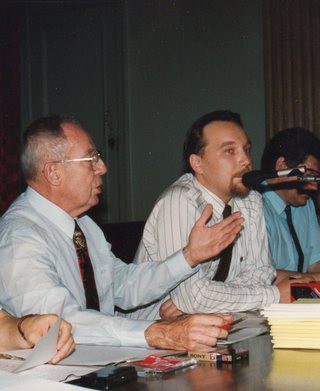 I supposed that Benoist, who hated deeply all the people invited by Dugin and Prokhanov in September 1992, started to tell Dugin the worst possible things about myself and the others. In his paranoid eyes, the combined invitation was the evidence that a “Schneiderite-Steuckersite” plot was about to succeed with the sardonic blessing of Thiriart, whom Benoist loathed particularly, because the Belgian animator of the former “Young Europe” movement based in Brussels and his fellow-travelers like Bernard Garcet couldn’t stop mocking the “would-be intellectual and narcissistic Frenchie”, who has “frail, puny and unmuscular arms coming out of his shabby sleeves” and “who was permanently smoking like a chimney”. Thiriart unfortunately died some weeks after his visit to Moscow. But since then, probably due to Benoist’s gossip, I could meet Dugin only once, in 2005, when he came to Brussels and Antwerp to address two different meetings. Just after the Brussels’ meeting, held in the famous Coloma Castle, Dugin took a very light meal (as it was Lent time) and jumped on the train to Paris, as he had an appointment with Benoist. I’ve never heard of him anymore since then. Alain de Benoist surely pursued his usual dissolving job of chitchatting and splitting the movement, by setting the people of our own spiritual-intellectual community at loggerheads, as if he was duly paid to do so by some mysterious sponsors...
I supposed that Benoist, who hated deeply all the people invited by Dugin and Prokhanov in September 1992, started to tell Dugin the worst possible things about myself and the others. In his paranoid eyes, the combined invitation was the evidence that a “Schneiderite-Steuckersite” plot was about to succeed with the sardonic blessing of Thiriart, whom Benoist loathed particularly, because the Belgian animator of the former “Young Europe” movement based in Brussels and his fellow-travelers like Bernard Garcet couldn’t stop mocking the “would-be intellectual and narcissistic Frenchie”, who has “frail, puny and unmuscular arms coming out of his shabby sleeves” and “who was permanently smoking like a chimney”. Thiriart unfortunately died some weeks after his visit to Moscow. But since then, probably due to Benoist’s gossip, I could meet Dugin only once, in 2005, when he came to Brussels and Antwerp to address two different meetings. Just after the Brussels’ meeting, held in the famous Coloma Castle, Dugin took a very light meal (as it was Lent time) and jumped on the train to Paris, as he had an appointment with Benoist. I’ve never heard of him anymore since then. Alain de Benoist surely pursued his usual dissolving job of chitchatting and splitting the movement, by setting the people of our own spiritual-intellectual community at loggerheads, as if he was duly paid to do so by some mysterious sponsors...
The only tracks of Dugin that I can follow now are his video clips on “You tube”, that the webmaster of “euro-synergies.hautetfort.com”, old friend Ducarme, sometimes takes over to inform our readers about Dugin’s new activities.
As you surely know, Dugin derives his Eurasian ideology from two main sources: Konstantin Leontiev and Lev Gumilev. As you cannot consider Leontiev and Gumilev as pro-European thinkers, our views are slightly different than those of Dugin: we surely admit the criticism Leontiev and Gumilev adressed to Western thoughts when they were still alive but as we consider ourselves as “Europeans” and not “Westerners”, we cannot accept the equation too often made between “Europe” and the “West”. Leontiev at his time knew that Western European liberalism was the main danger for Russia (and for other empires, as well as for the Western European people themselves) and wanted to isolate the Czarist Empire from the womb of subversion that Europe was in his eyes. Gumilev thought more or less according to the same line, adding biological views that a spiritualist like Leontiev wouldn’t have taken into consideration. Surely in the context of the 19th Century, they were right. But the Western subversive spirit came to Russia under the mask of Bolshevism and remained in power for about 70 years, while the usual liberal ideology spoilt continuously the rest of Europe. The two sides during the era of the Cold War underwent a form or another of subversion. Now we all face a major risk of Westernization under neo-liberal (globalist) disguise. So neither Western-Central Europe nor the countries of the former USSR can win the battle against subversion alone. Would Russia isolate itself according to the formerly well-thought guidelines coined by Leontiev or Gumilev (and reproduced in a much simpler formulation by Dugin), we Western Europeans wouldn’t play any role in the future world struggle against subversive ideologies or would have to fight in the limited area of the reduced Western part of the Eurasian peninsula. The risk is to recreate a kind of new isolated Soviet Union or a renewed “Tatar Block’ (according to the Eurasian ideology of Alexander Blok, who also spoke of a Scythian Russia and of a Bolshevik revolution being the best embodiment of subversion but at the head of which the opponents to subversion should place themselves as you cannot struggle againt subversion if you don’t first take control over it). Isolation isn’t a solution today neither for the Russians nor for ourselves. Otherwise the worst aspects of Nazi or Nato propaganda could be too easily reactivated.
I expressed our vision of Eurasian or Euro-Russian solidarity in the foreword I wrote for a book by our Croatian friend Jure Vujic about Atlanticist and Eurasian geopolitics. The “Synergist” movement is maybe also “Scythian” but not in the way Blok thought it was Scythian. For us the Indo-European horsemen’s tribes, that left Eastern Central Europe with the first domesticated horses to spread far across the Ukrainian and Central Asian steppes, are the first historical subjects in the Eurasian areas between the present-day Western Ukrainian borders and today’s Chinese Sinkiang or Turkestan. Eurasia was first dominated by Indo-European people and not by Altaic or Mongolic khans. It is true that from about 220 B.C. the Proto-Mongolic tribes united in the so-called Xiongnu Federation, that started the movement of the Hunnic people towards the Western areas of Eurasia and would in the run expel or annihilate politically the Indo-European horsemen’s peoples and tribes. The Russian “reconquista” from Ivan IV to the 19th Century is the revenge of the Indo-European people, the cosacks’ sotnia replacing the Scyths, Proto-Iranians, Sarmatians and Sakhians. In France, a Ukrainian historian of protohistorical times, Iaroslav Lebedynsky, has published several very accurate historical and archeological studies about the Indo-European horsemen’s people that allow us to develop a specific Eurasian vision, that is slightly different than the one coined by Dugin. The young French historian Pascal Lassalle is, among former members of the GRECE-groups, the best present-day specialist of Lebedynsky’s works.
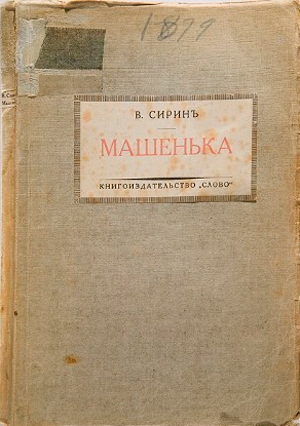 His first Russian literary publications, signed with pseudonym Syrin (the name of the mythological paradise bird), were printed by emigrant press (“Mashenka”, “The Defence”). Some short stories and lyrical poems where he depicted the drama and tragedy of the Russian refugees, the downfall of their first hopes and their despair (an emigrant chess-player Luzhin in “The Defence” committed a suicide by jumping out of the window) were accepted with understanding by readers. One of them was Ivan Bunin, the Noble Prize winner for literature and one of Nabokov’s authorities of that time.
His first Russian literary publications, signed with pseudonym Syrin (the name of the mythological paradise bird), were printed by emigrant press (“Mashenka”, “The Defence”). Some short stories and lyrical poems where he depicted the drama and tragedy of the Russian refugees, the downfall of their first hopes and their despair (an emigrant chess-player Luzhin in “The Defence” committed a suicide by jumping out of the window) were accepted with understanding by readers. One of them was Ivan Bunin, the Noble Prize winner for literature and one of Nabokov’s authorities of that time.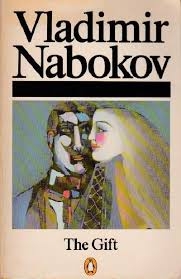 “The Gift” ’s author doesn’t say many words about his favorite writers in a direct way. You just see their reflections or allusions to their aesthetics, feel their invisible breathing. At the same time he dedicates the whole chapter 4 to the biography of Nikolai Chernyshevskiy, a famous revolutionary-populist (narodnik) and a spiritual father in the person of Lenin that becomes the negative center of the novel. Nabokov follows the example of Dostoevskiy’s “Demons” and gives a caricature portrait of the revolutionary, but he makes it in a different manner. Not to be boring, Nabokov retells the Cherdyntsev’s utilitarian and socially limited ideas in the black ironic verse.
“The Gift” ’s author doesn’t say many words about his favorite writers in a direct way. You just see their reflections or allusions to their aesthetics, feel their invisible breathing. At the same time he dedicates the whole chapter 4 to the biography of Nikolai Chernyshevskiy, a famous revolutionary-populist (narodnik) and a spiritual father in the person of Lenin that becomes the negative center of the novel. Nabokov follows the example of Dostoevskiy’s “Demons” and gives a caricature portrait of the revolutionary, but he makes it in a different manner. Not to be boring, Nabokov retells the Cherdyntsev’s utilitarian and socially limited ideas in the black ironic verse.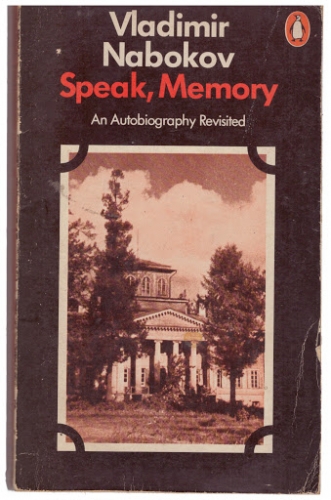 He finished the book of memories – its first title “Conclusive Evidence” (1951) – later changed into “Speak, Memory” by the author -, where he described in a pure classic manner his happy childhood in a family village Rozhdestveno near St. Petersburgh, portrayed with infinite tender his parents and represented the general life atmosphere of a good old pre-revolutionary Russia.
He finished the book of memories – its first title “Conclusive Evidence” (1951) – later changed into “Speak, Memory” by the author -, where he described in a pure classic manner his happy childhood in a family village Rozhdestveno near St. Petersburgh, portrayed with infinite tender his parents and represented the general life atmosphere of a good old pre-revolutionary Russia.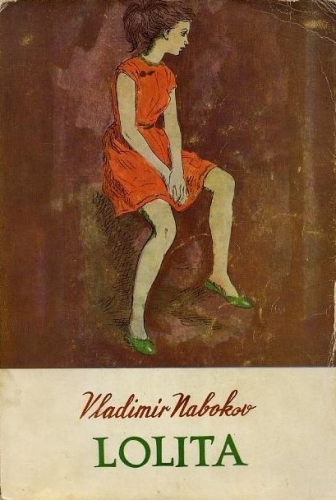 Nabokov tried to defend himself. He said that “Lolita” couldn’t be considered as anti-American. While composing the story, he tried to be an American writer. What one should bear in mind he was not a realistic author, he wrote fiction. It had taken Nabokov some forty years to invent Russia and Western Europe. And at that moment he faced the task of inventing America. He didn’t like Humbert Humbert. Indeed that character was not an American citizen, he was a foreigner and an anarchist. Nabokov disagreed with him in many ways, besides, nymphets like his, disagreed, for example, with Freid or Marx.
Nabokov tried to defend himself. He said that “Lolita” couldn’t be considered as anti-American. While composing the story, he tried to be an American writer. What one should bear in mind he was not a realistic author, he wrote fiction. It had taken Nabokov some forty years to invent Russia and Western Europe. And at that moment he faced the task of inventing America. He didn’t like Humbert Humbert. Indeed that character was not an American citizen, he was a foreigner and an anarchist. Nabokov disagreed with him in many ways, besides, nymphets like his, disagreed, for example, with Freid or Marx.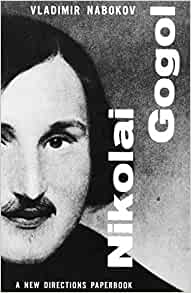 Nabokov’s critical biography by Nikolai Gogol (a non-Christian interpretation of a Christian author were the first books, published in the Soviet Union. But his “Lectures on Russian Literature”, “Lecture on Literature” (on Western Europe), “Strong Opinions” where he collected some interviews, letters and articles were unknown until post-soviet times.
Nabokov’s critical biography by Nikolai Gogol (a non-Christian interpretation of a Christian author were the first books, published in the Soviet Union. But his “Lectures on Russian Literature”, “Lecture on Literature” (on Western Europe), “Strong Opinions” where he collected some interviews, letters and articles were unknown until post-soviet times.



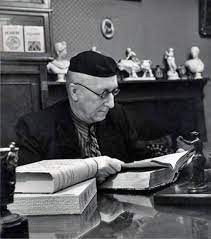
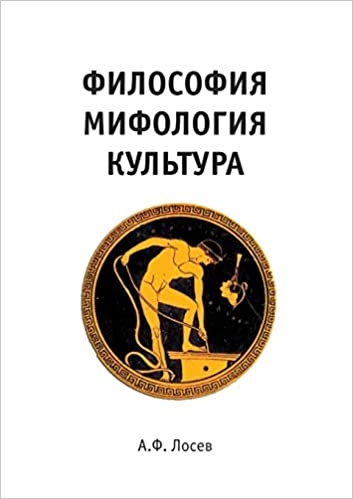
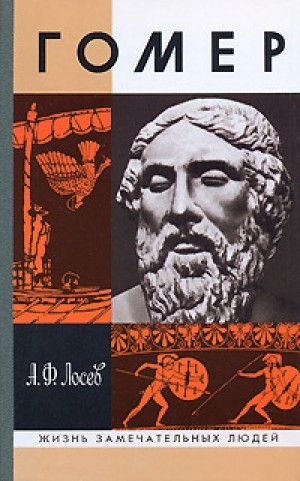


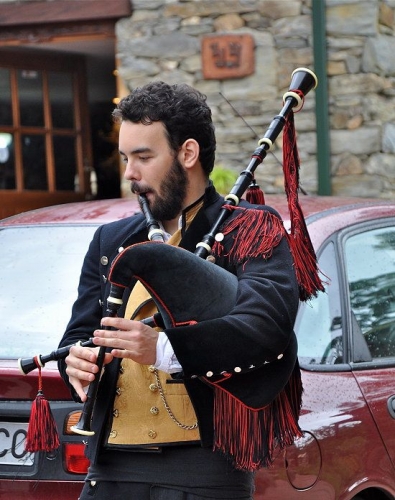
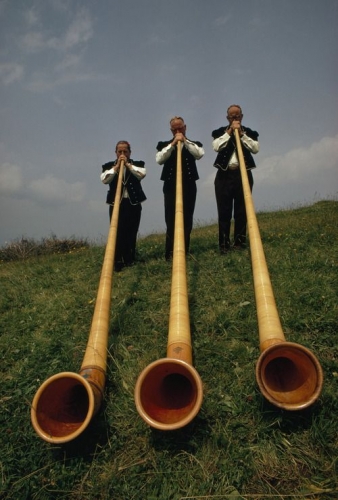
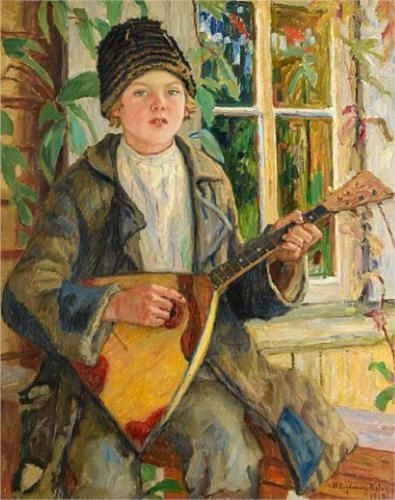
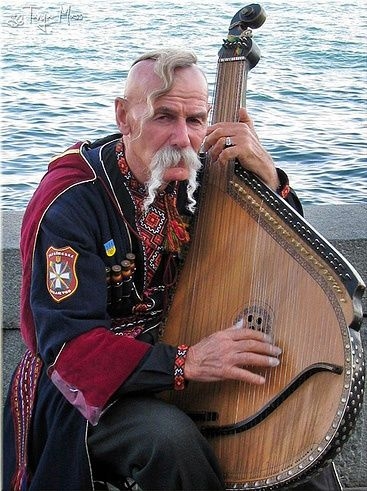
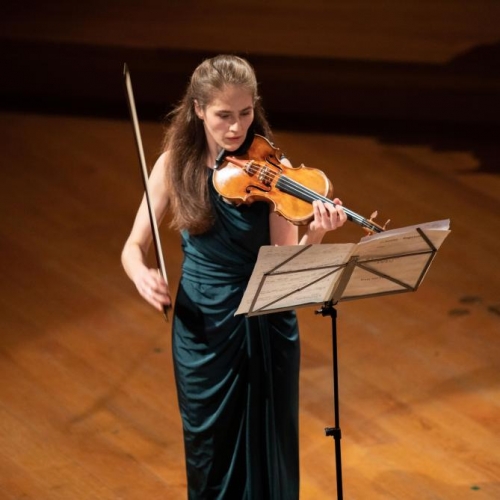
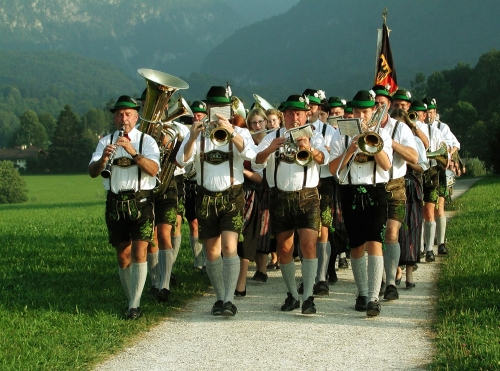


 del.icio.us
del.icio.us
 Digg
Digg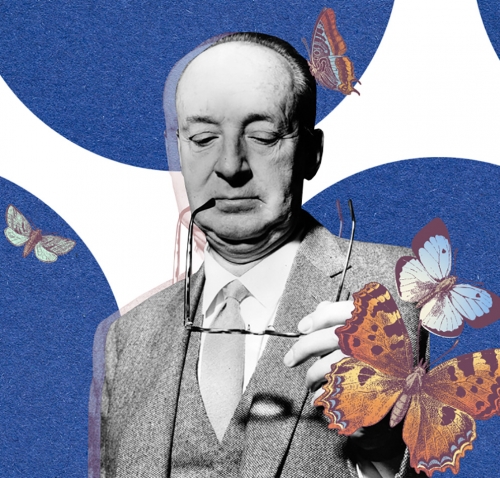
 In Brussels my grand-father became the helper of a
In Brussels my grand-father became the helper of a





 Some years later Alain de Benoist interviewed for “Nouvelle école” the Nobel Prize Konrad Lorenz who had written well shaped didactical books to warn mankind of the dangers of a possible “lukewarm death” if the natural (and therefore biological) predispositions of Man as a living being were not taken into consideration by the political world or the Public Health Offices. Although he had the backing of a Nobel Prize winner and of the Oslo or Stockholm jury having granted Prof. Lorenz the Prize, de Benoist has till yet feared to resume the kind of research “Nouvelle école” had tried to start in the middle of the Seventies. The paralysing fear he felt in the deepest of his guts lead him to express all kind of denials and rejections that were in no case scientifically or factually established but were mere makeshift jobs typical of political journalists manipulating blueprints in order to deceive their audience.
Some years later Alain de Benoist interviewed for “Nouvelle école” the Nobel Prize Konrad Lorenz who had written well shaped didactical books to warn mankind of the dangers of a possible “lukewarm death” if the natural (and therefore biological) predispositions of Man as a living being were not taken into consideration by the political world or the Public Health Offices. Although he had the backing of a Nobel Prize winner and of the Oslo or Stockholm jury having granted Prof. Lorenz the Prize, de Benoist has till yet feared to resume the kind of research “Nouvelle école” had tried to start in the middle of the Seventies. The paralysing fear he felt in the deepest of his guts lead him to express all kind of denials and rejections that were in no case scientifically or factually established but were mere makeshift jobs typical of political journalists manipulating blueprints in order to deceive their audience. 

 I was the first in the New Right group to stress the importance of this new drift in
I was the first in the New Right group to stress the importance of this new drift in Alain de Benoist observed our activities very distrustfully but most
Alain de Benoist observed our activities very distrustfully but most
 He invited me in June 1989 to talk about postmodernity, not in the usual way that prevailed in the end, i. e. the postmodern trend that leads downhill to more vulgar permissiveness and degenerated festivism (Philippe Muray), but in a way that had been suggested by the real and true old guru of the European New Right, who was Dr.
He invited me in June 1989 to talk about postmodernity, not in the usual way that prevailed in the end, i. e. the postmodern trend that leads downhill to more vulgar permissiveness and degenerated festivism (Philippe Muray), but in a way that had been suggested by the real and true old guru of the European New Right, who was Dr.


 In this duty free customs office, Hatzenbichler used to buy his cigarettes every day. Due to the successes of the national-liberal party first lead by Jörg Haider and later by Hans-Christian Strache the Austrian scene became much more politicized than elsewhere in Western Europe. Most activities take place around the weekly paper “zur Zeit”, which was at the beginning an Austrian version of Stein’s “Junge Freiheit”. The magazine is now lead by Andreas Mölzer, an elected Member of the European Parliament. To be complete we also have to mention the excellent magazine “Neue Ordnung” published by Mag. Wolfgang Dvorak-Stocker, leader of the well-known publishing house “Stocker Verlag”. Due to the fact that Austria has been officially a neutral country since the Treaty of 1955, the views expressed by their publications are not Atlanticist but genuinely European and “neutral”, which could be a model for similar Western political parties. Till yet it has not been the case.
In this duty free customs office, Hatzenbichler used to buy his cigarettes every day. Due to the successes of the national-liberal party first lead by Jörg Haider and later by Hans-Christian Strache the Austrian scene became much more politicized than elsewhere in Western Europe. Most activities take place around the weekly paper “zur Zeit”, which was at the beginning an Austrian version of Stein’s “Junge Freiheit”. The magazine is now lead by Andreas Mölzer, an elected Member of the European Parliament. To be complete we also have to mention the excellent magazine “Neue Ordnung” published by Mag. Wolfgang Dvorak-Stocker, leader of the well-known publishing house “Stocker Verlag”. Due to the fact that Austria has been officially a neutral country since the Treaty of 1955, the views expressed by their publications are not Atlanticist but genuinely European and “neutral”, which could be a model for similar Western political parties. Till yet it has not been the case.


 Tarchi was upset and scandalized to see me in casuals (i. e. a mustard-yellow T-shirt and linen trousers!) and with a water flask! He
Tarchi was upset and scandalized to see me in casuals (i. e. a mustard-yellow T-shirt and linen trousers!) and with a water flask! He
 He simply longs for being on the stage again, the very stage from which he was expelled in December 1981 by the future winners in the metapolitical game. In this sense he is very naive as the kind of people now in power, and controlling tightly the media-ruled “soft power”, will never be ready to leave him even an extremely reduced room to express his views. It is for such a flimsy and unachievable ambition —being a mere pinch of soft mustard in the dreary meal boiled in the hotchpotched kitchen of the narrow-minded French media world— that he has betrayed many of his old friends like Guillaume Faye and that he refuses to discuss objectively the problems arousing from mass immigration and, subsequently, by a rampant islamization in big Cities (and as an odd-thought population demographical graft, a “chaotization” in large urban areas within the main states and civilizational realms considered since President Carter as mere “aliens audiences” areas, even if they are theoretically good “allies”).
He simply longs for being on the stage again, the very stage from which he was expelled in December 1981 by the future winners in the metapolitical game. In this sense he is very naive as the kind of people now in power, and controlling tightly the media-ruled “soft power”, will never be ready to leave him even an extremely reduced room to express his views. It is for such a flimsy and unachievable ambition —being a mere pinch of soft mustard in the dreary meal boiled in the hotchpotched kitchen of the narrow-minded French media world— that he has betrayed many of his old friends like Guillaume Faye and that he refuses to discuss objectively the problems arousing from mass immigration and, subsequently, by a rampant islamization in big Cities (and as an odd-thought population demographical graft, a “chaotization” in large urban areas within the main states and civilizational realms considered since President Carter as mere “aliens audiences” areas, even if they are theoretically good “allies”).


